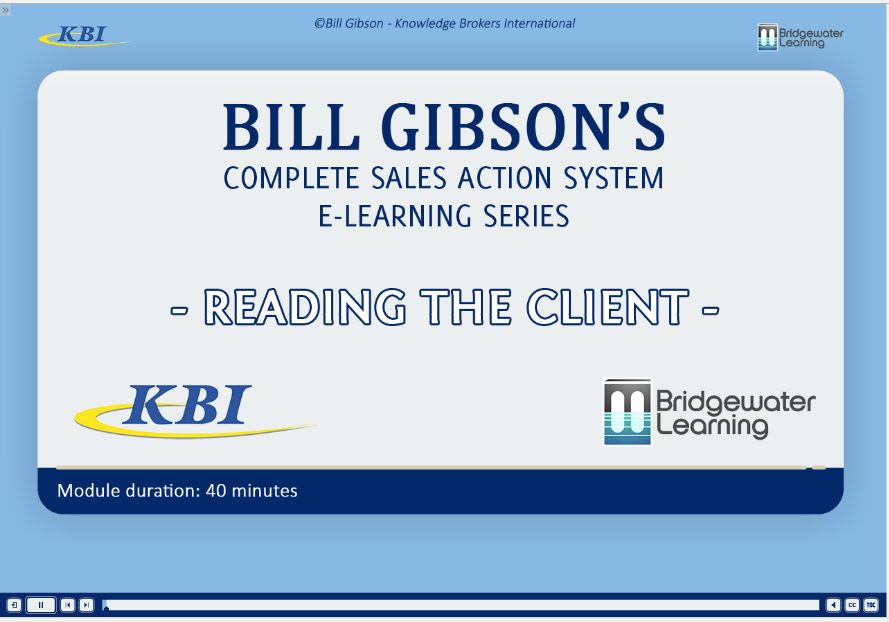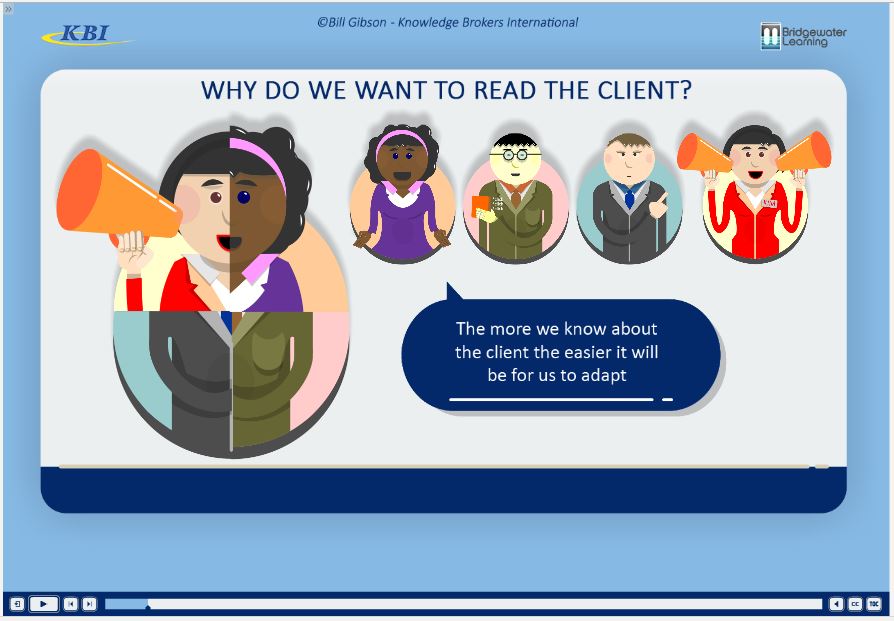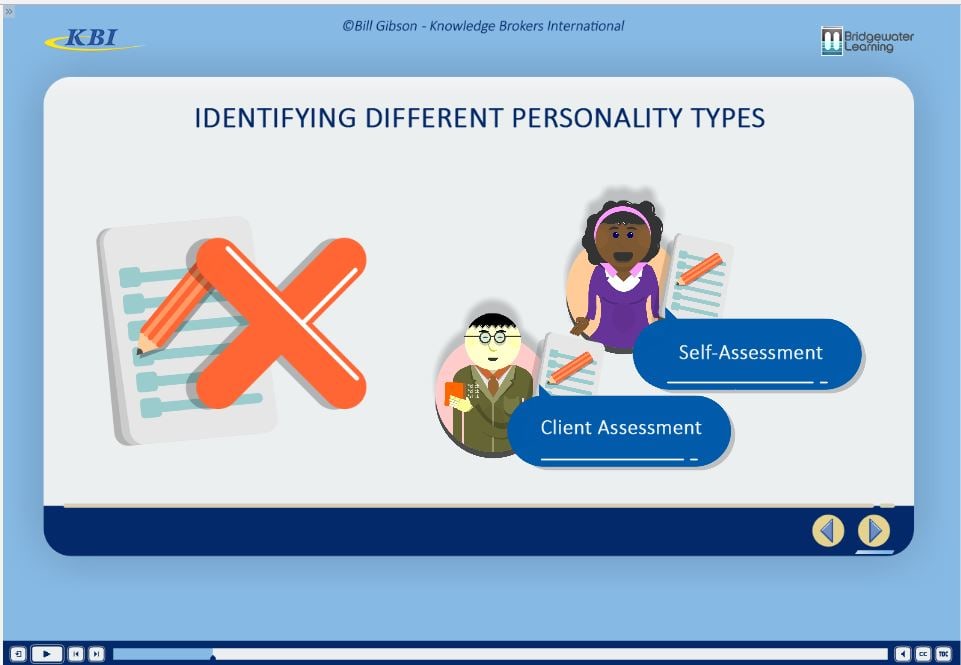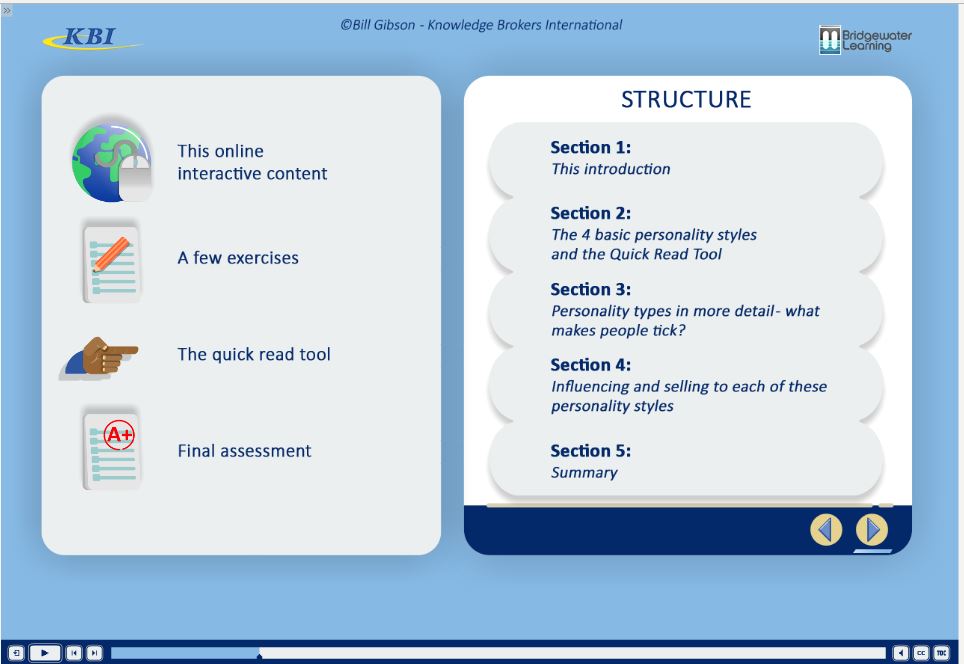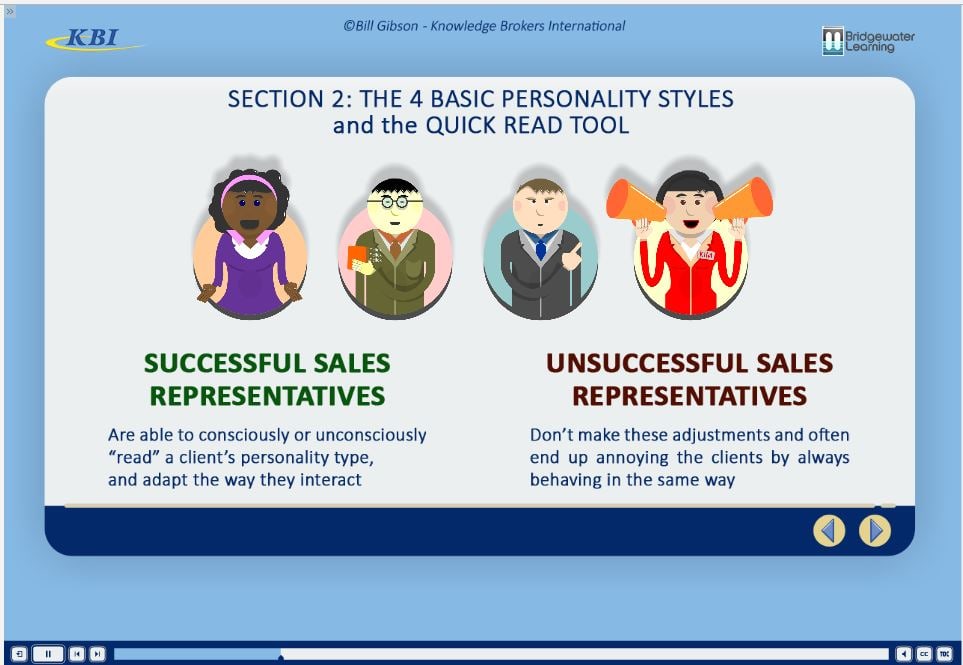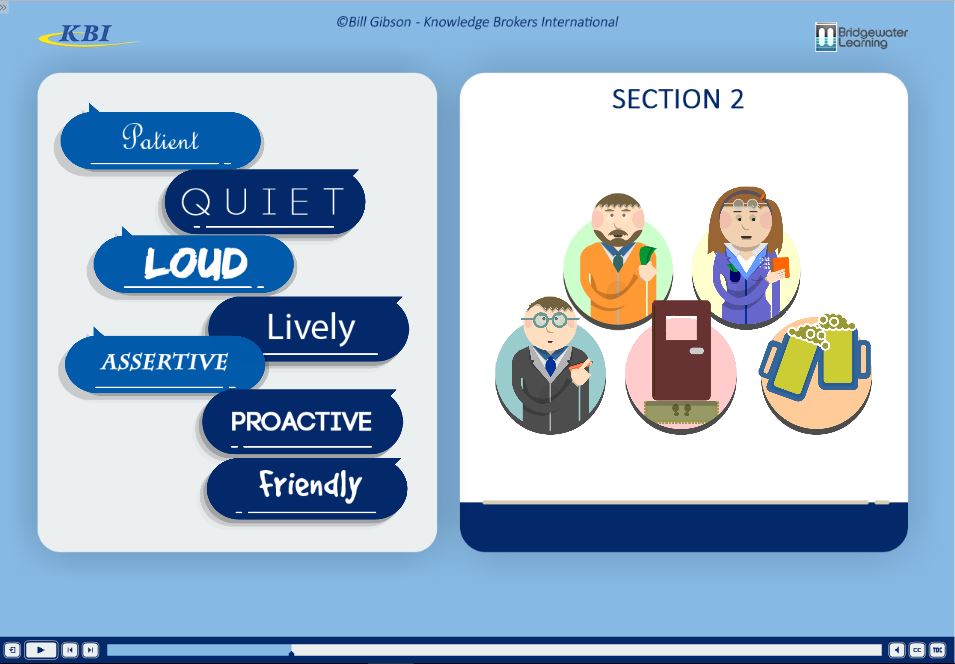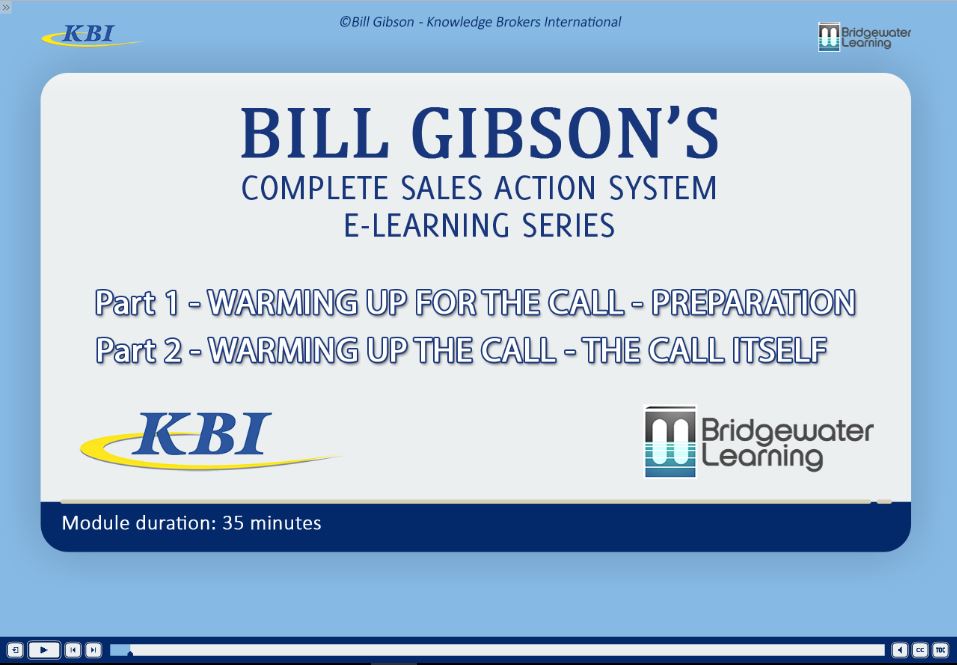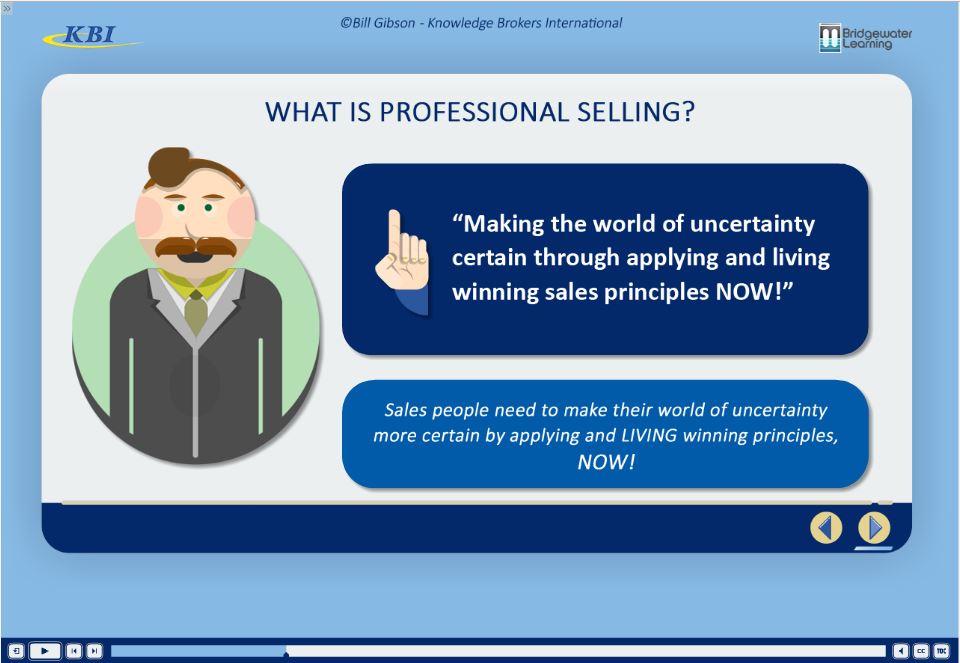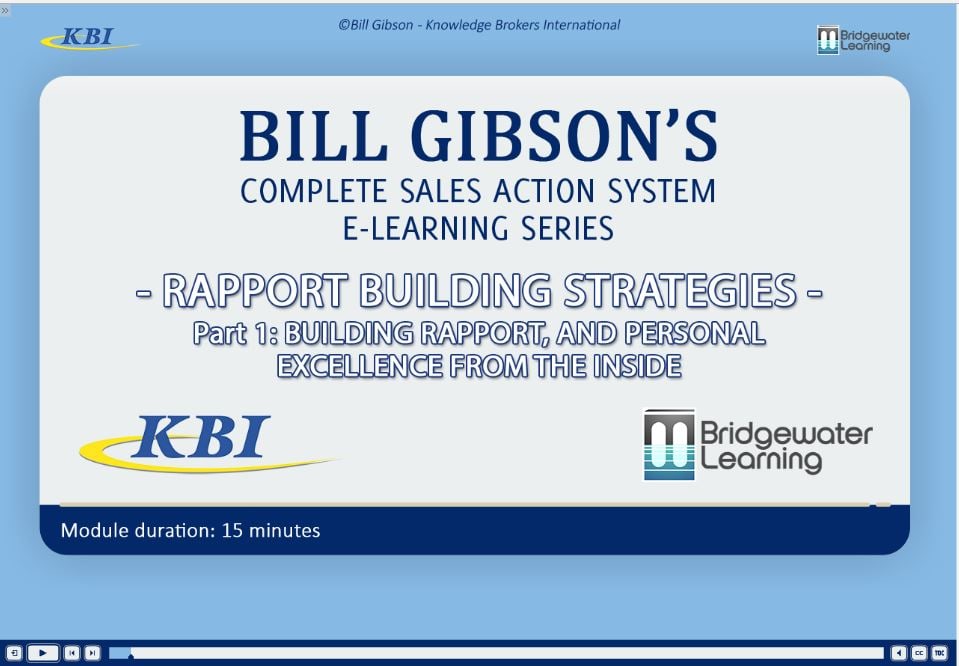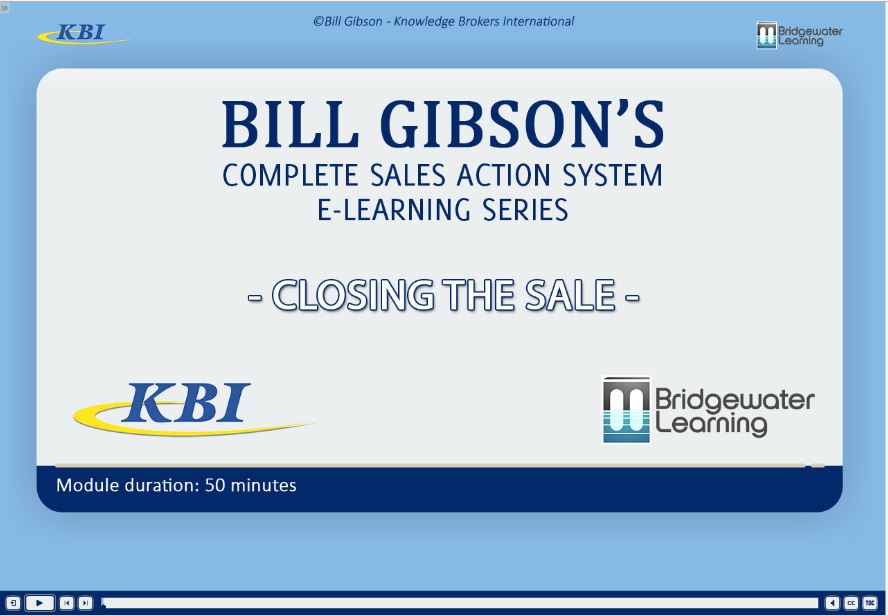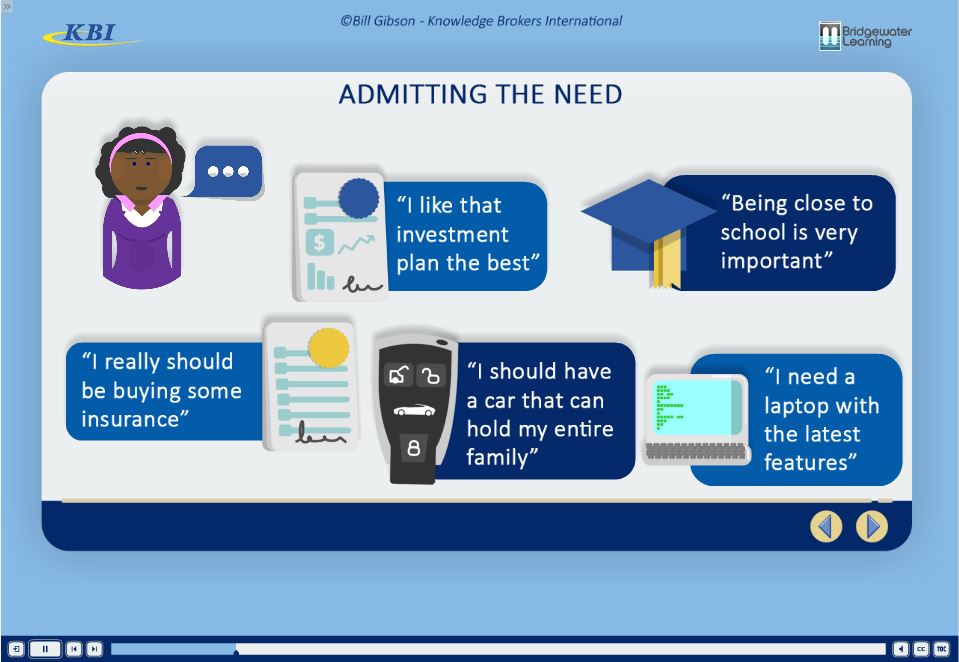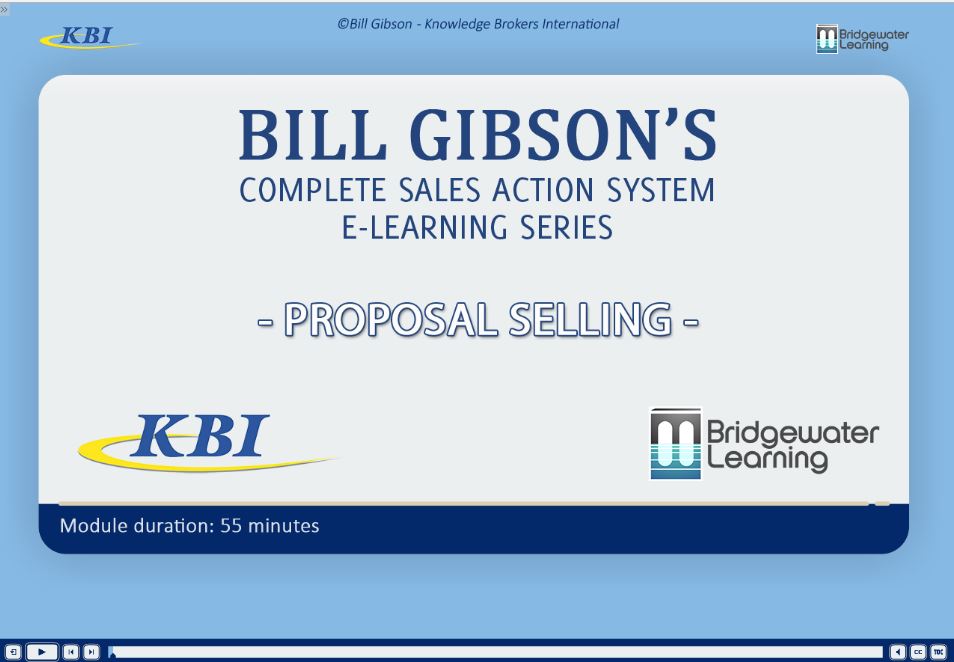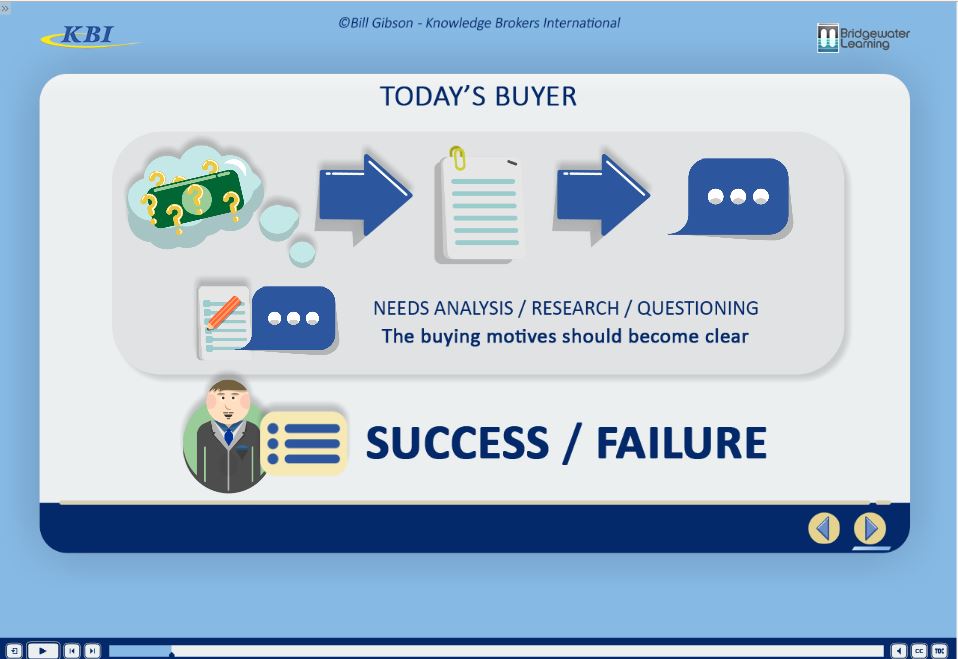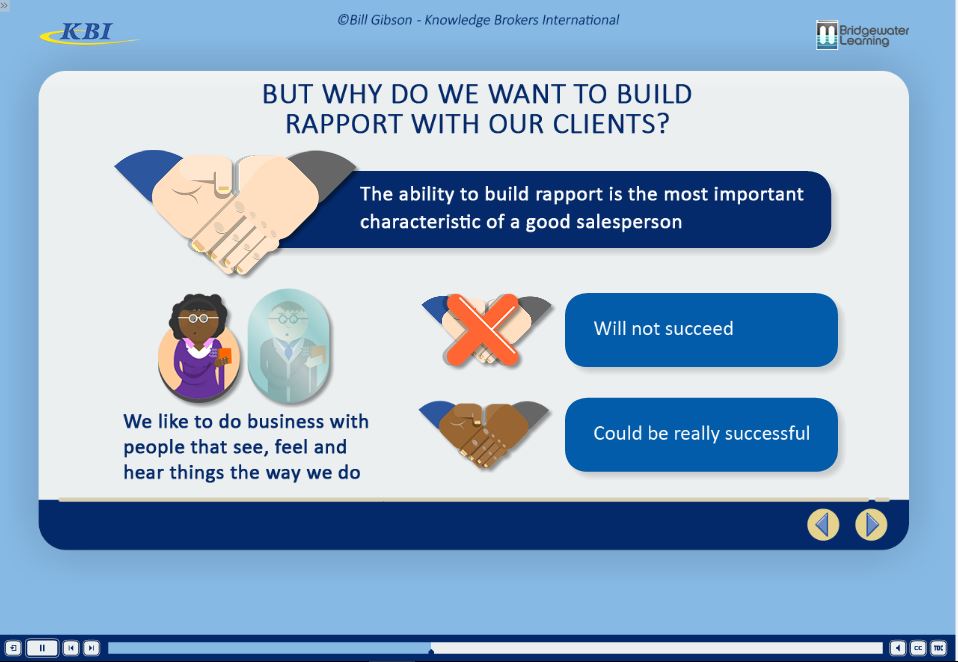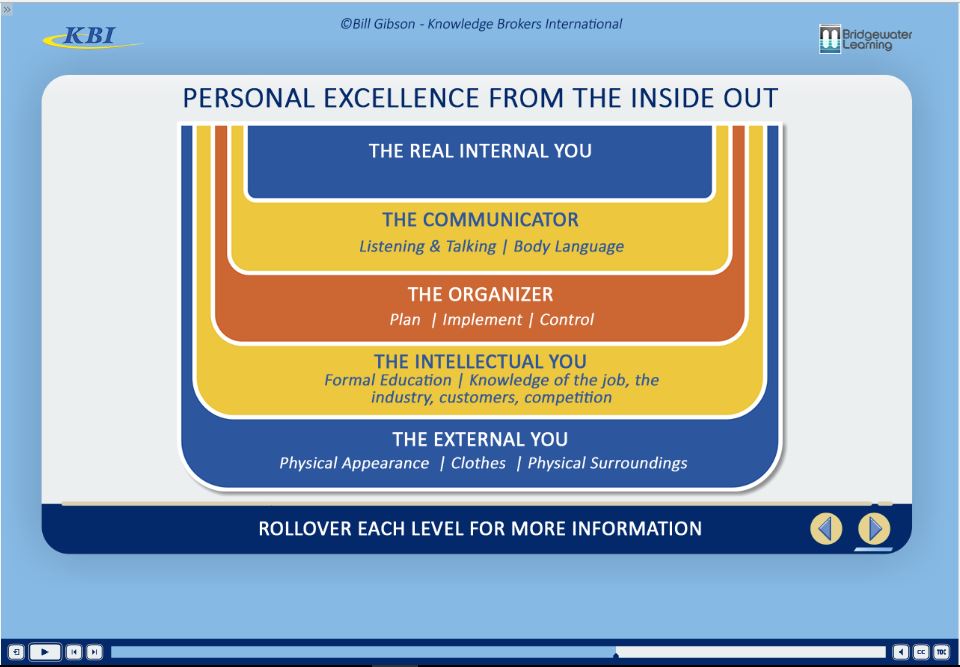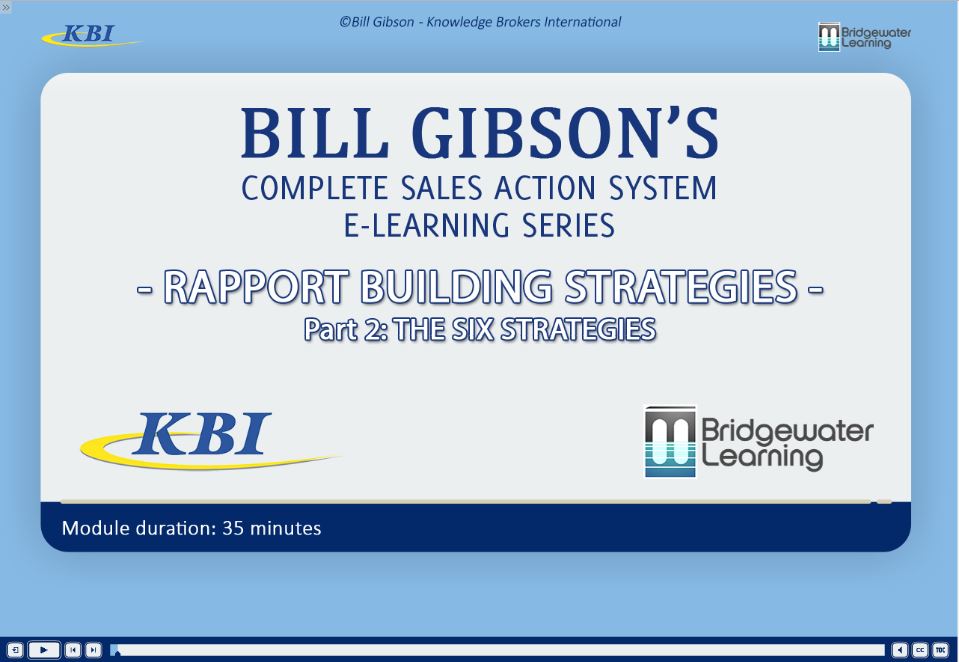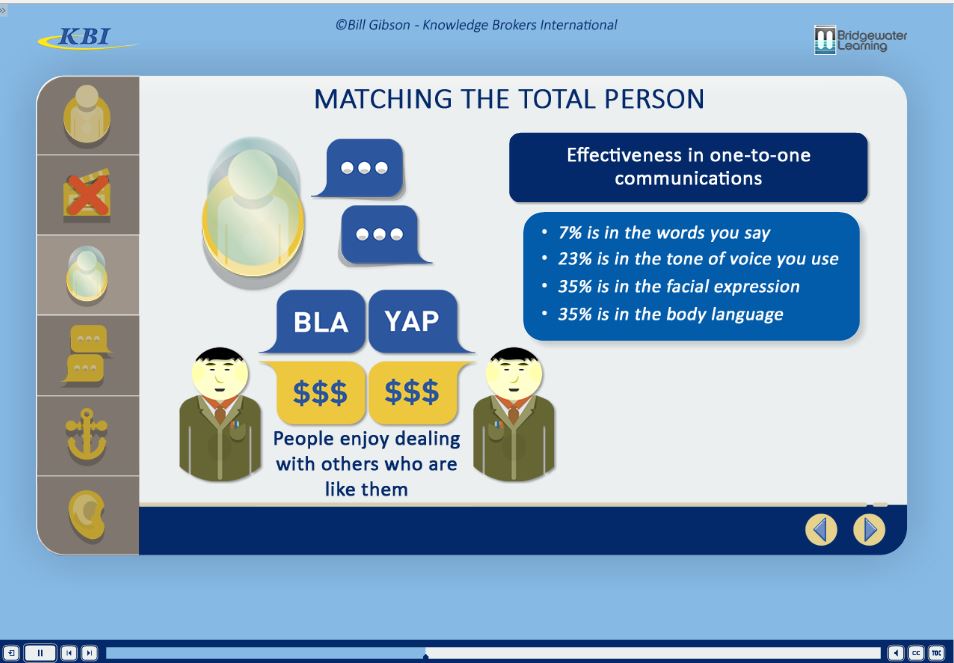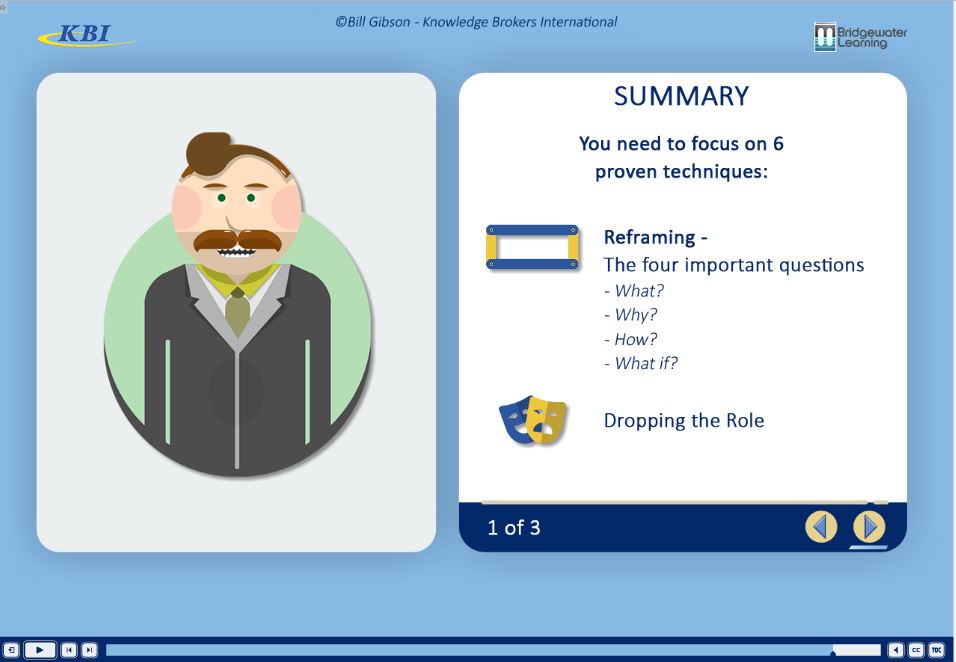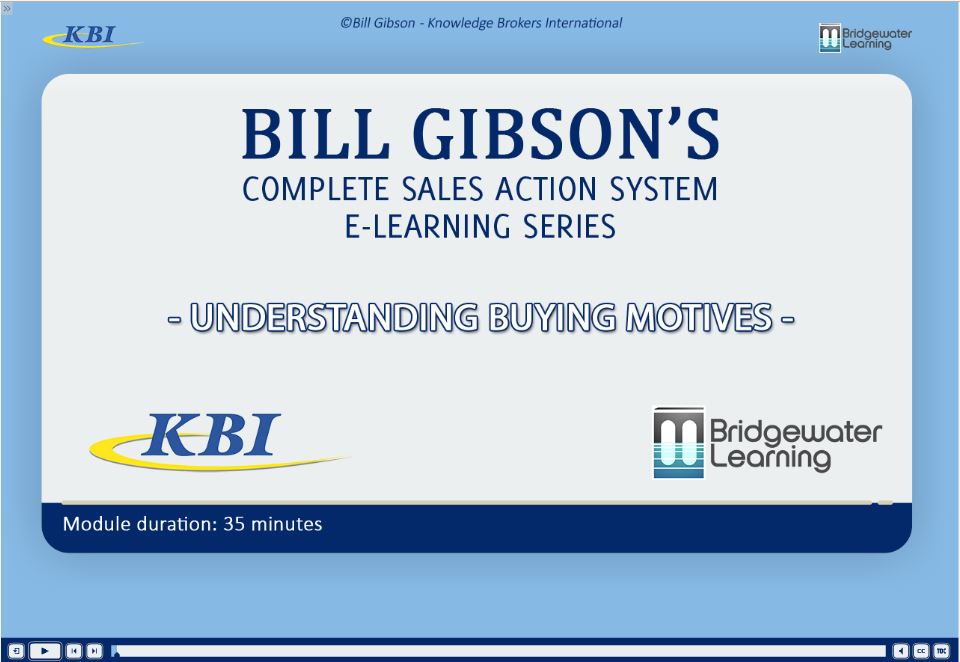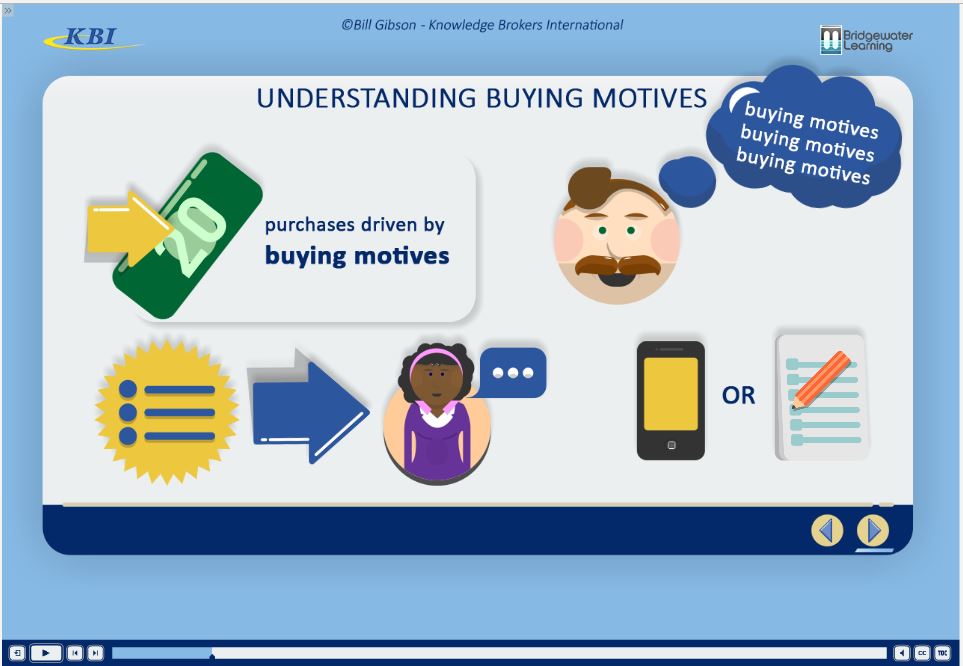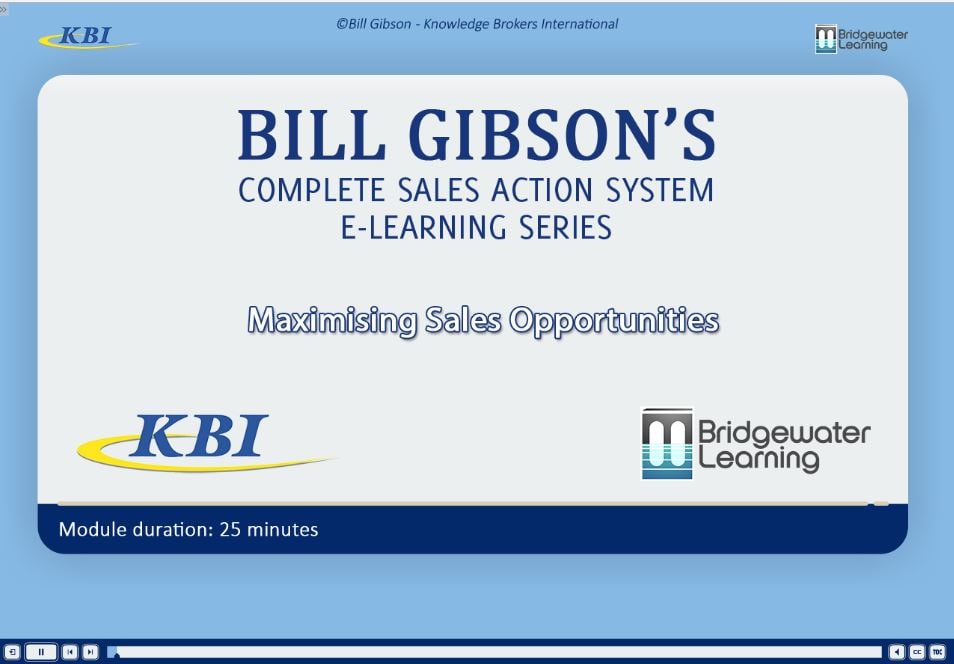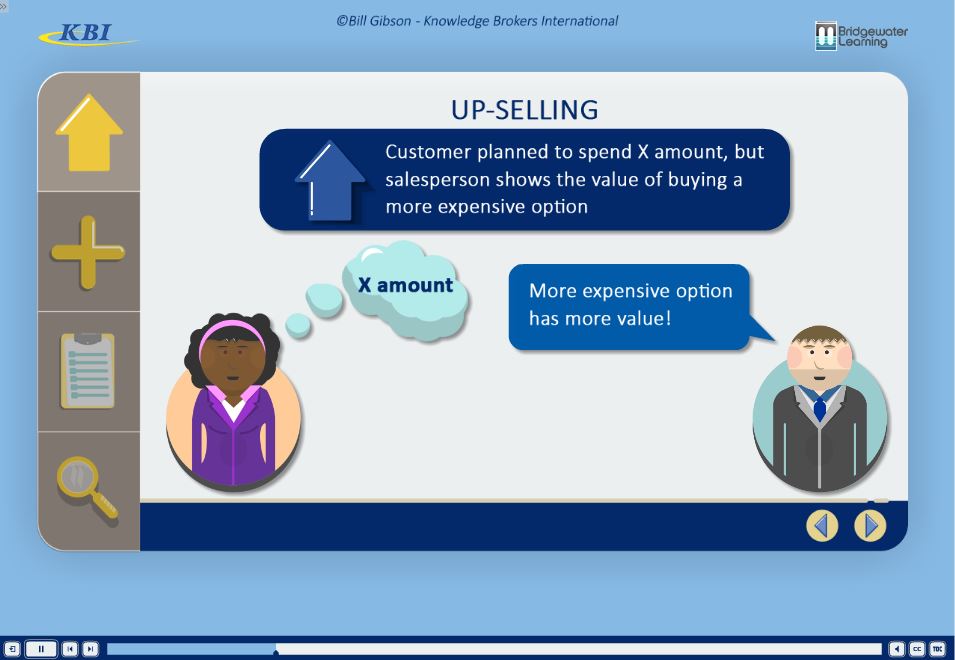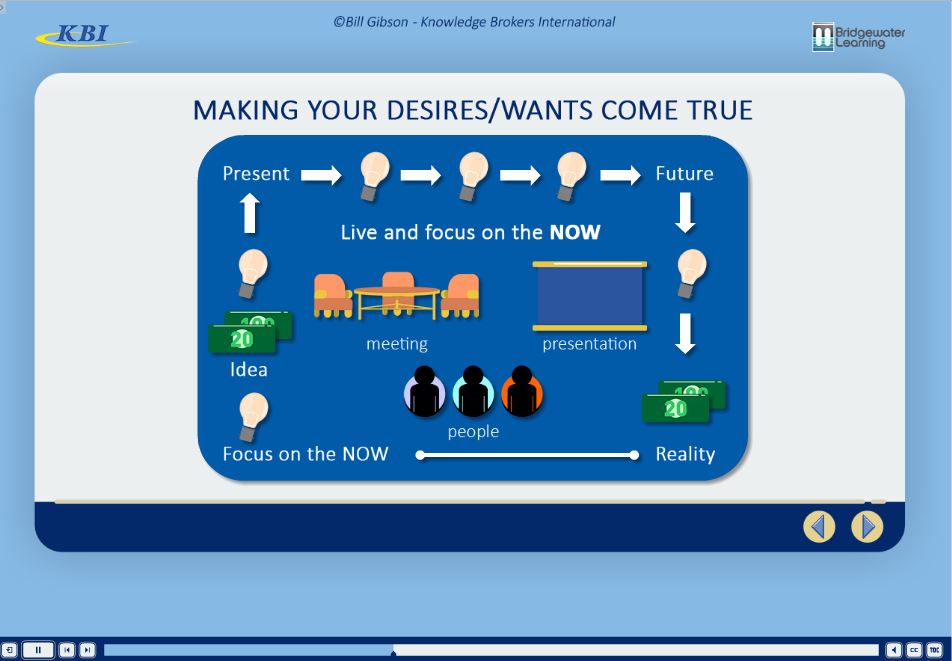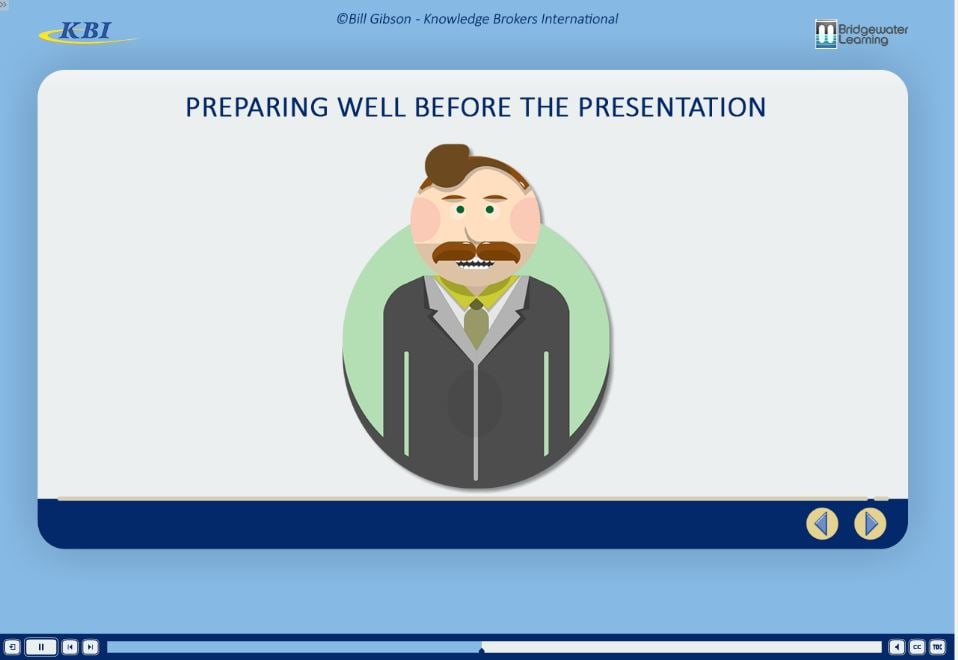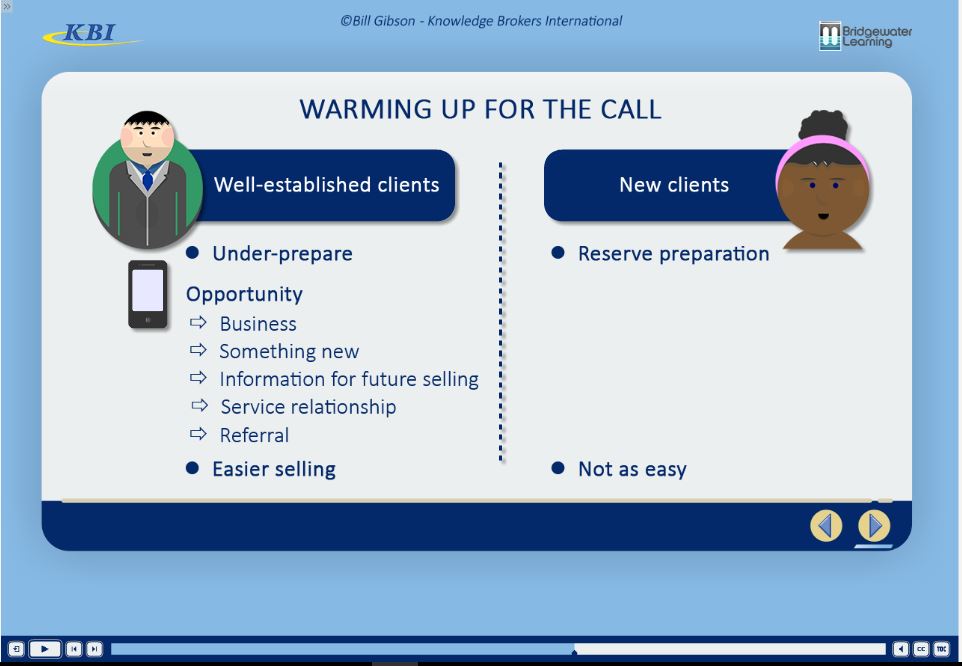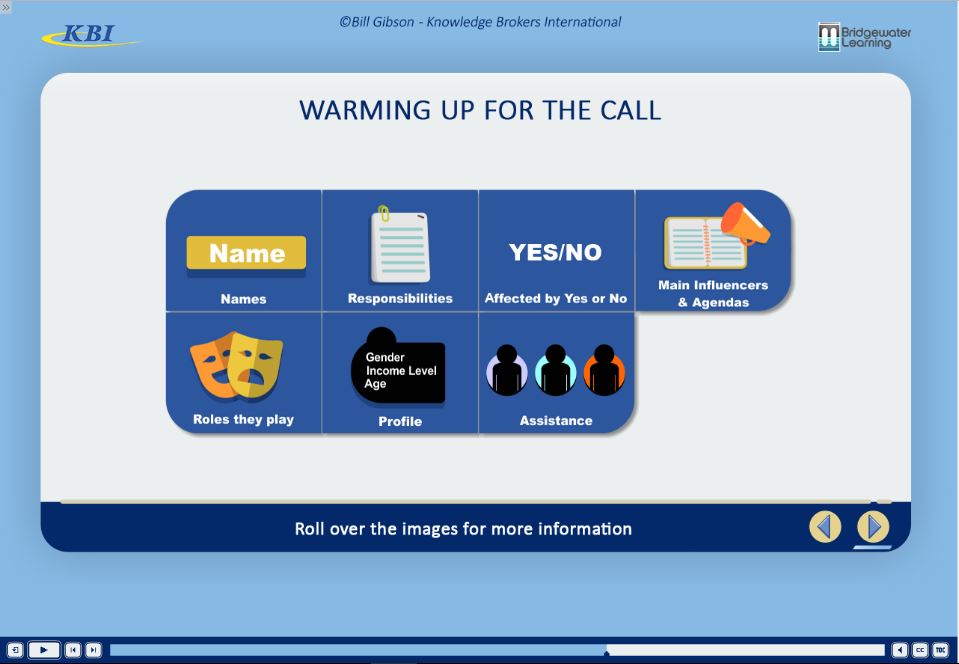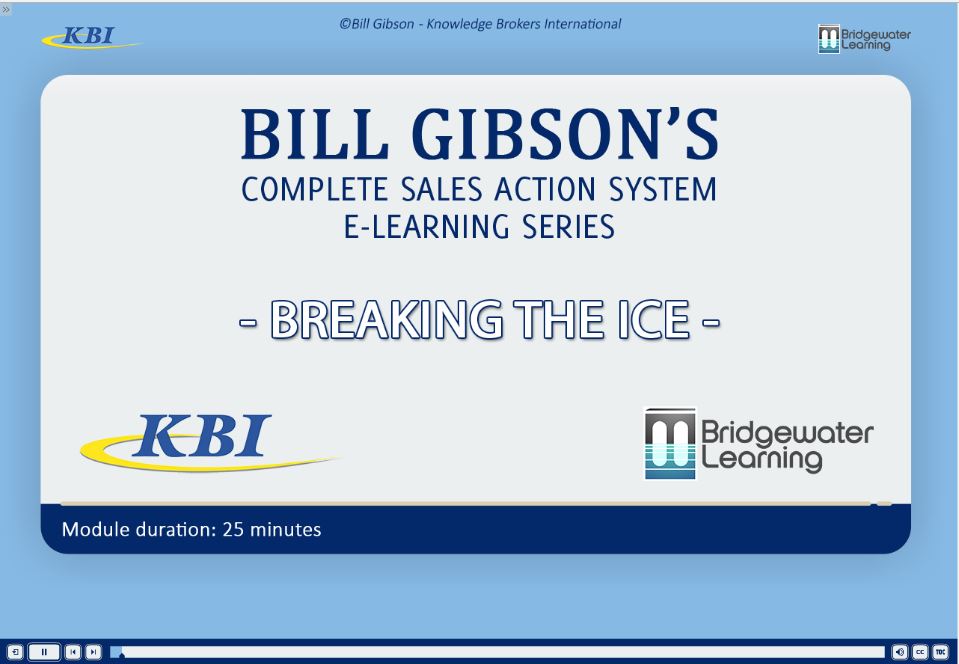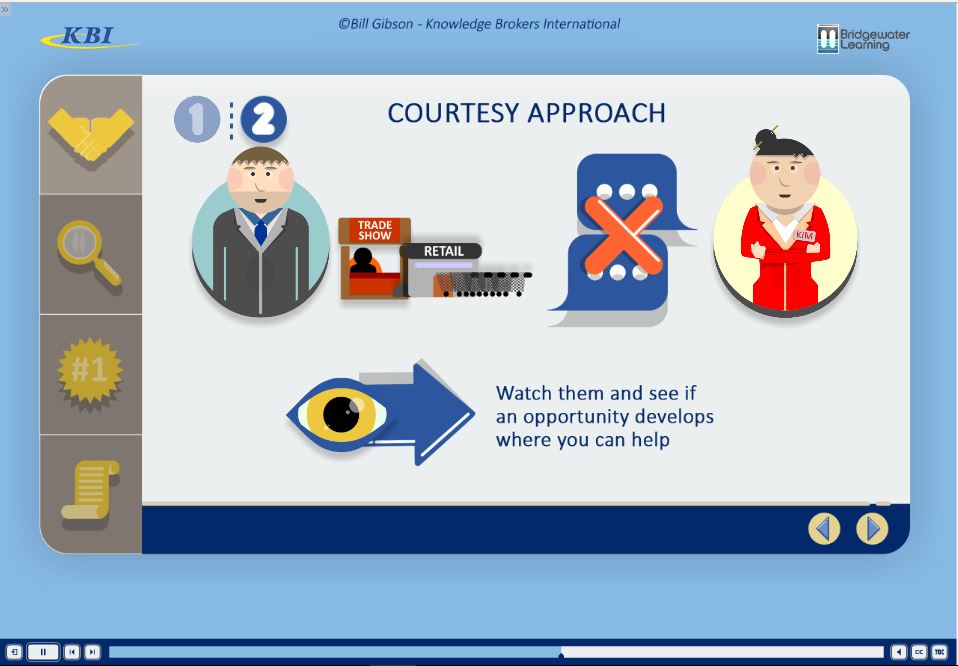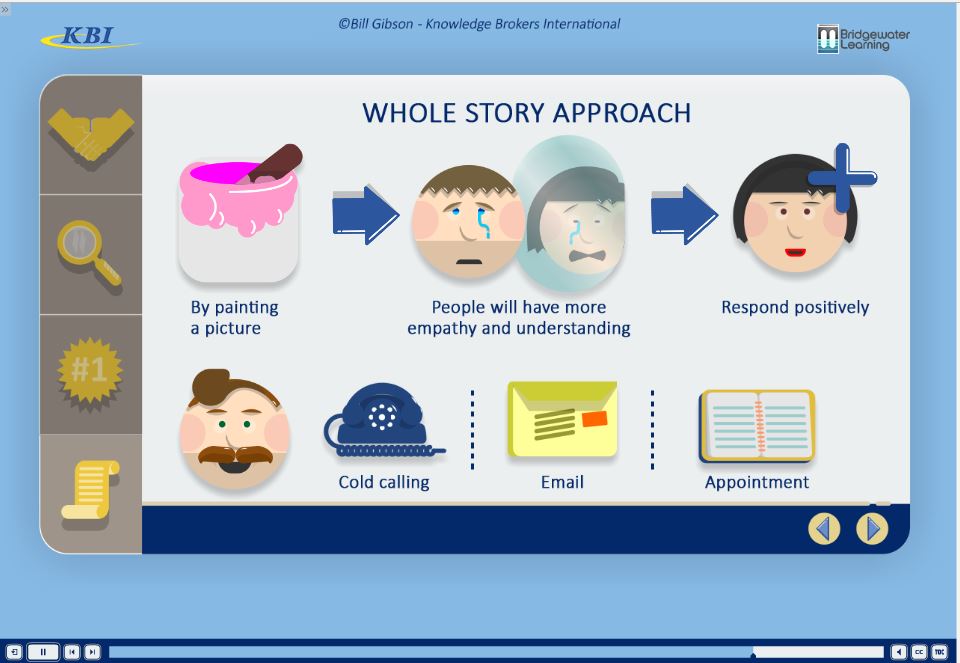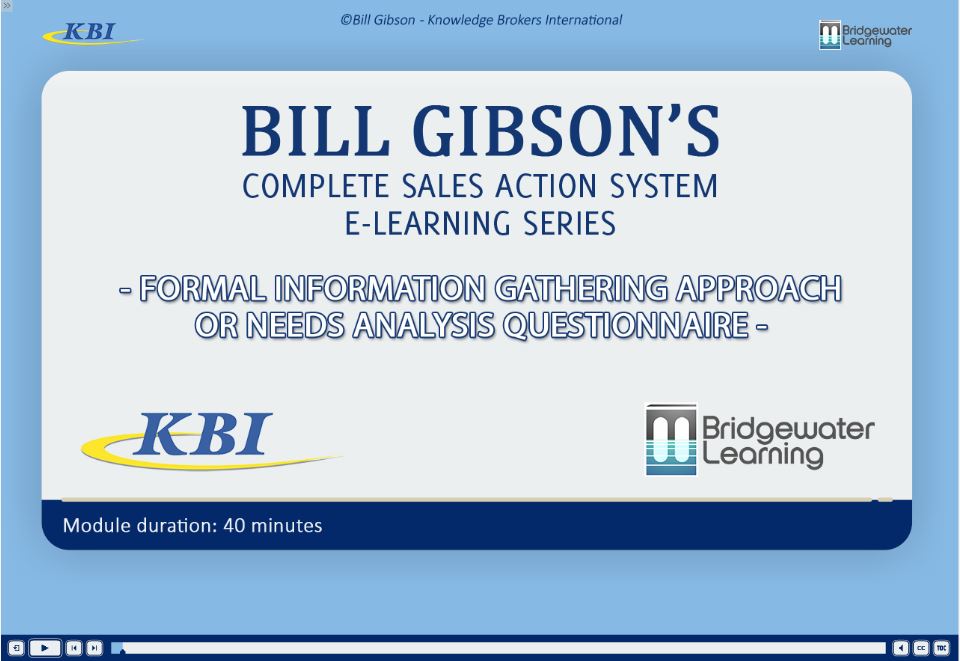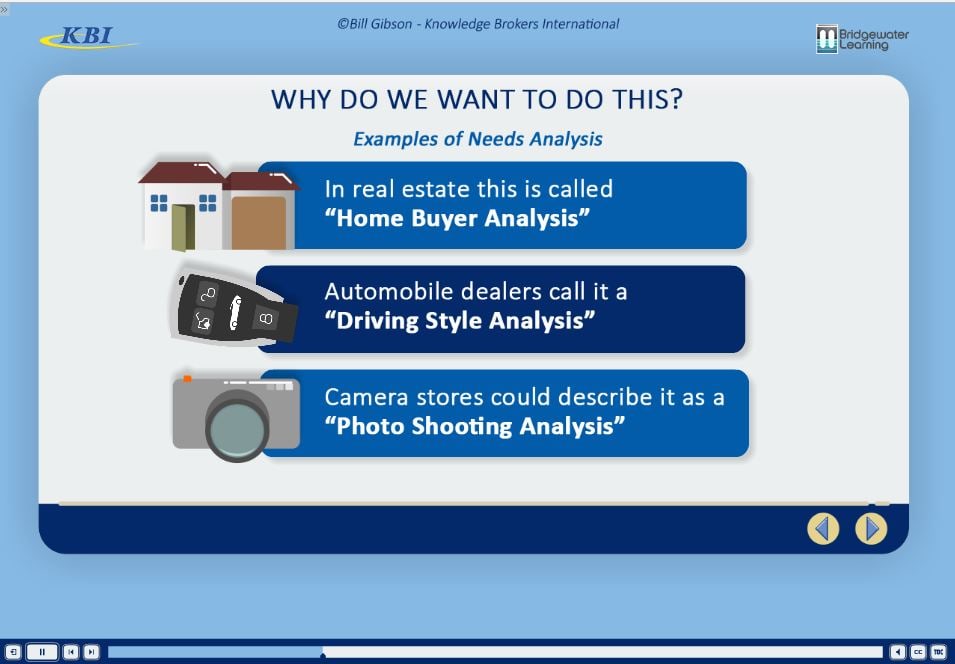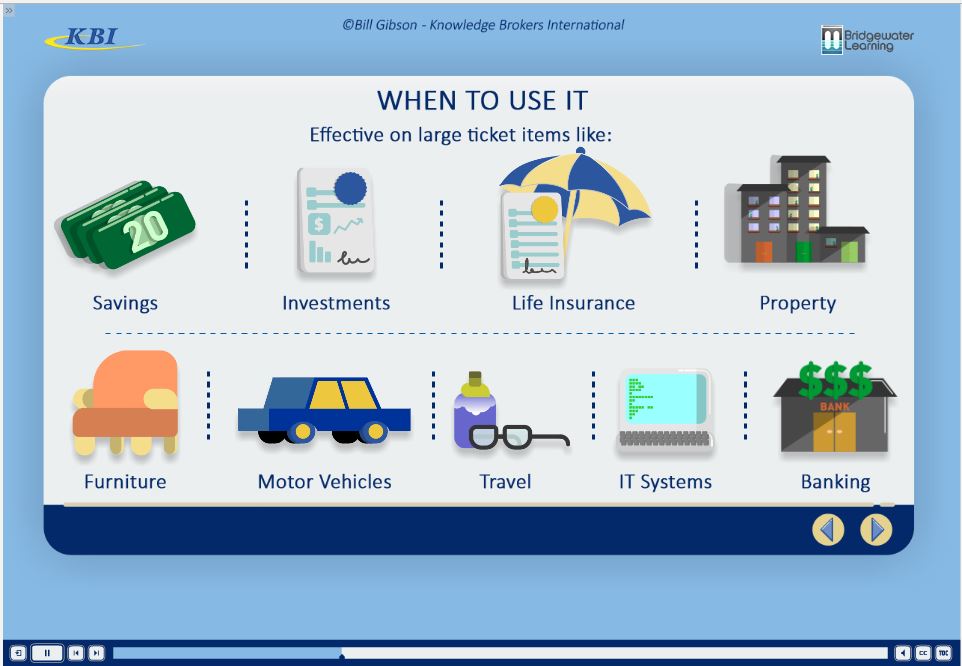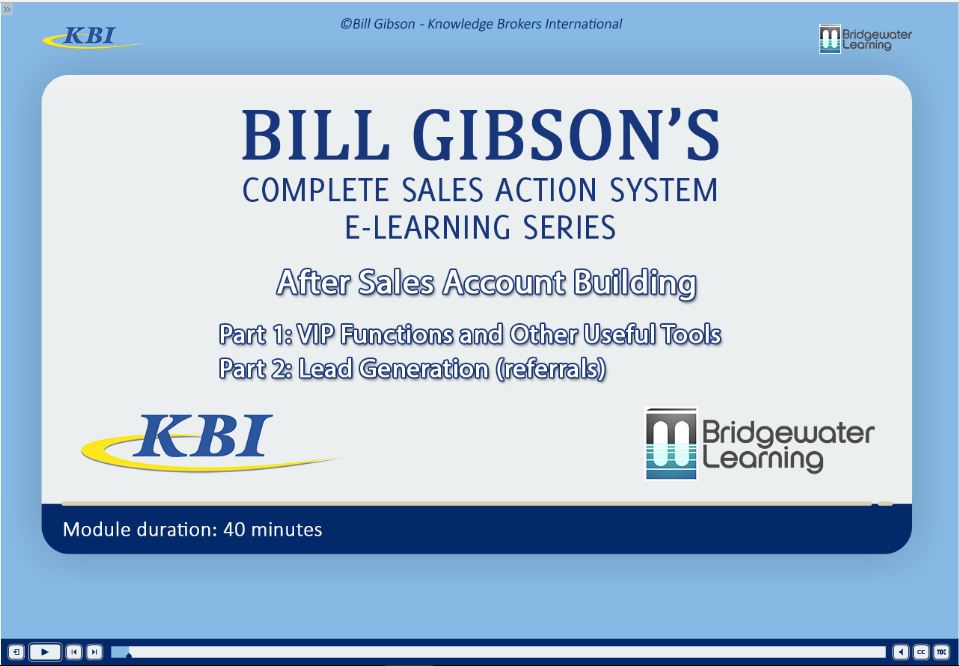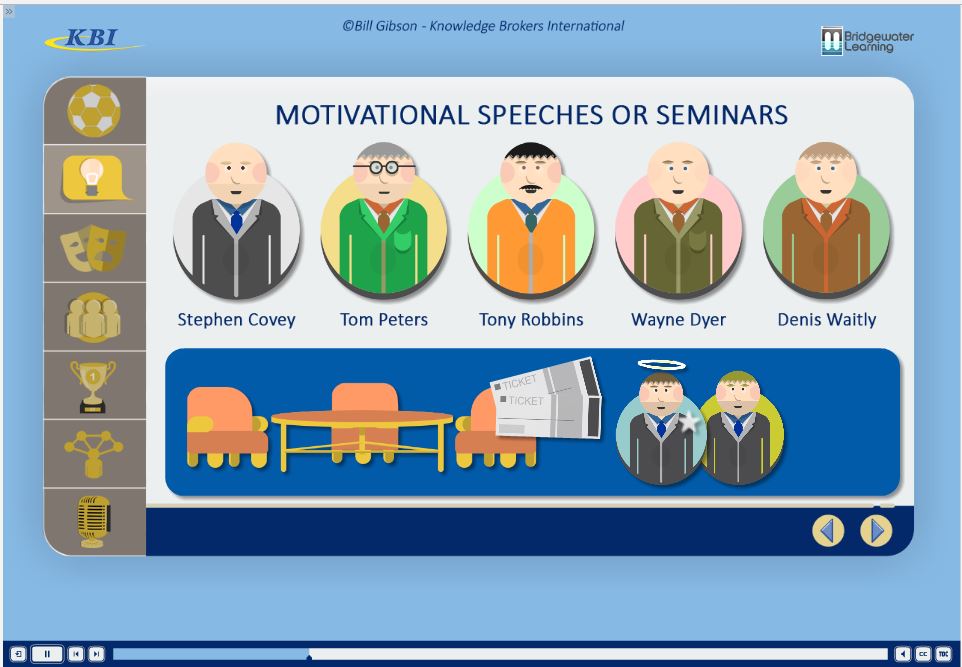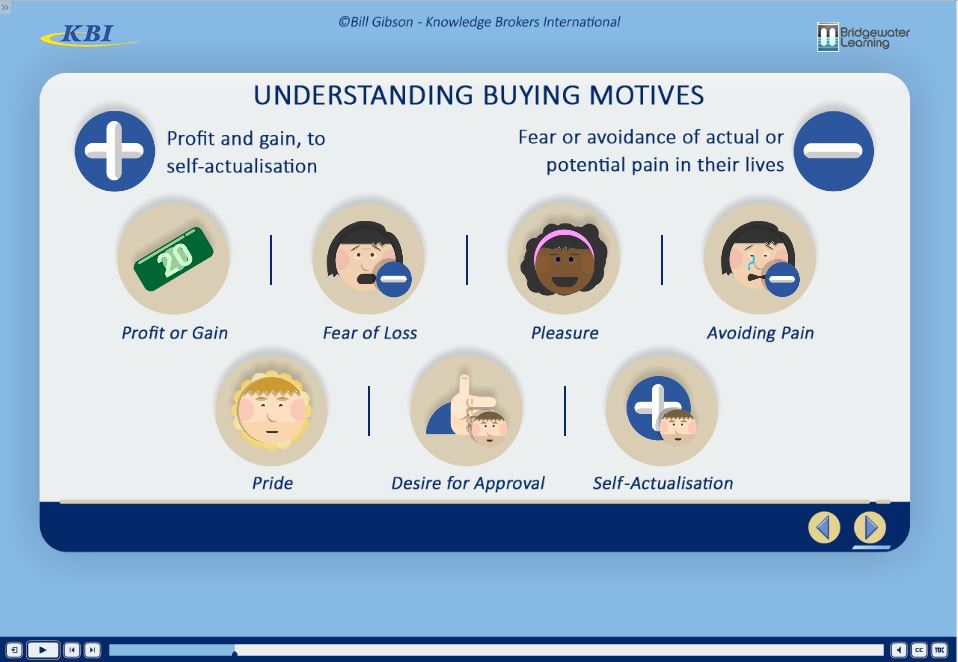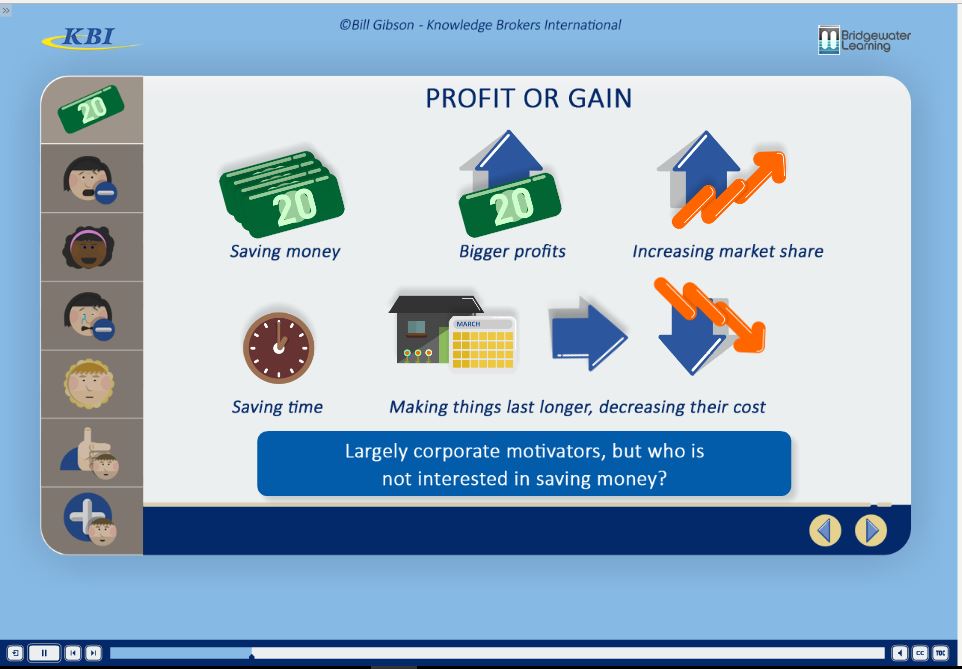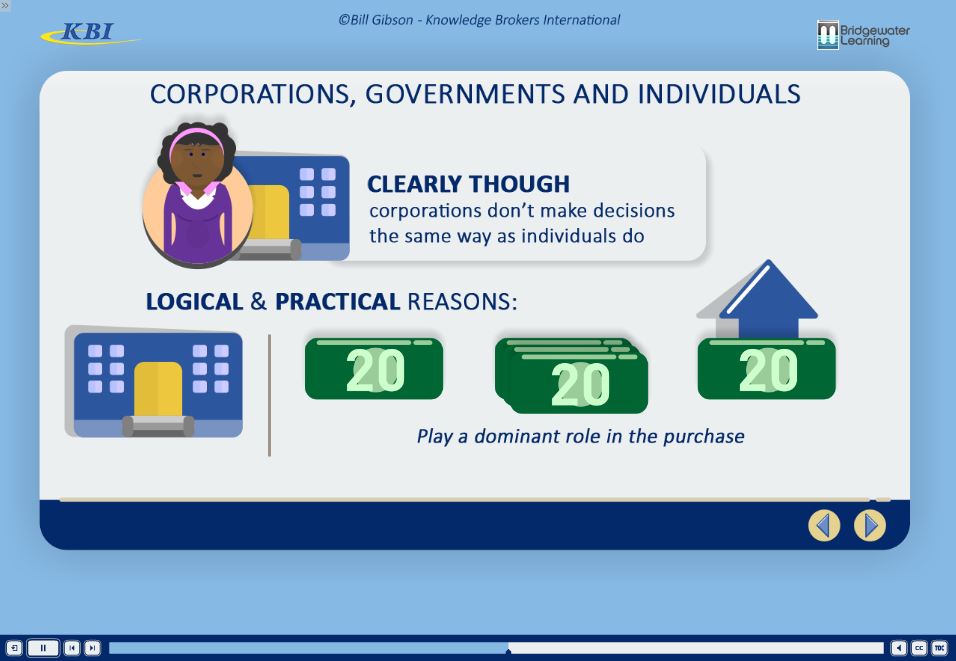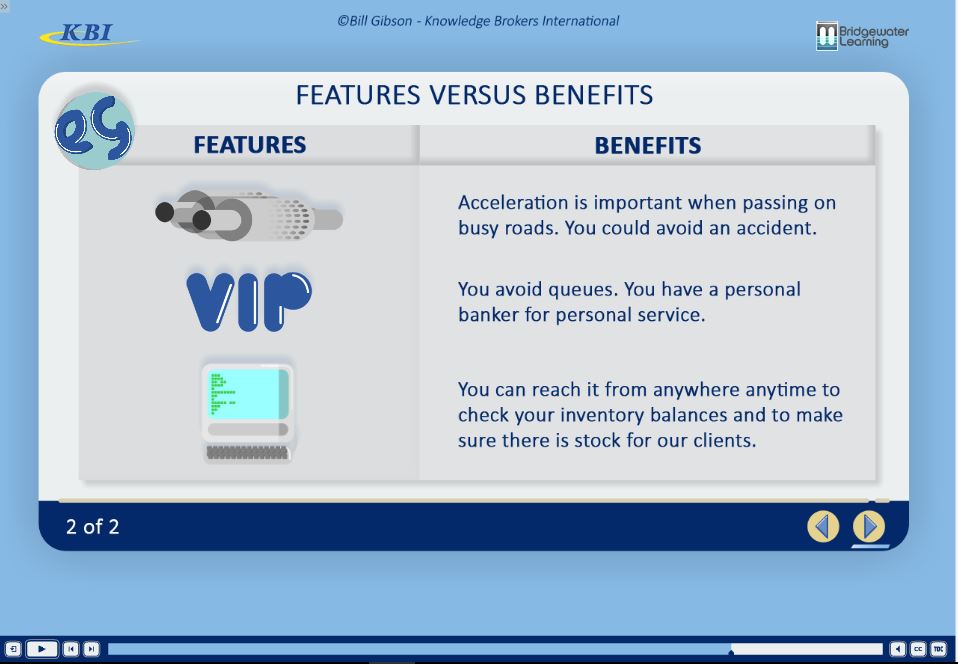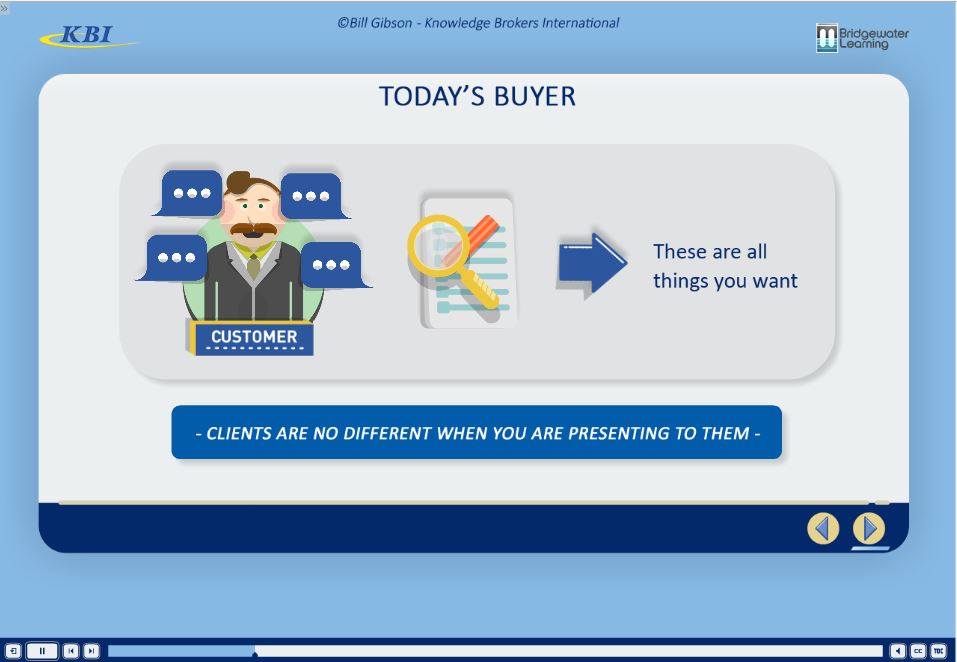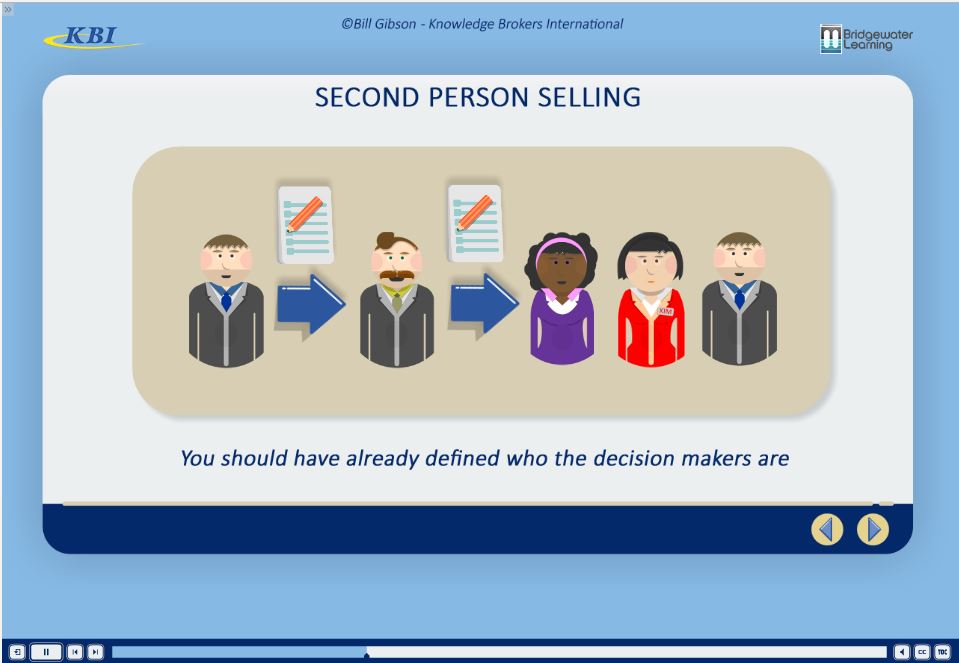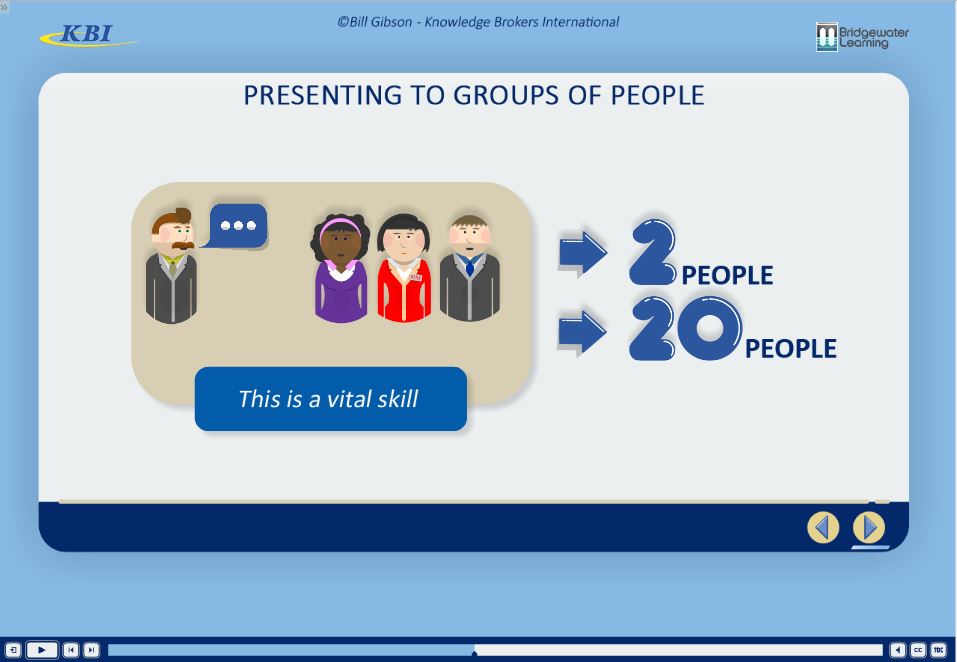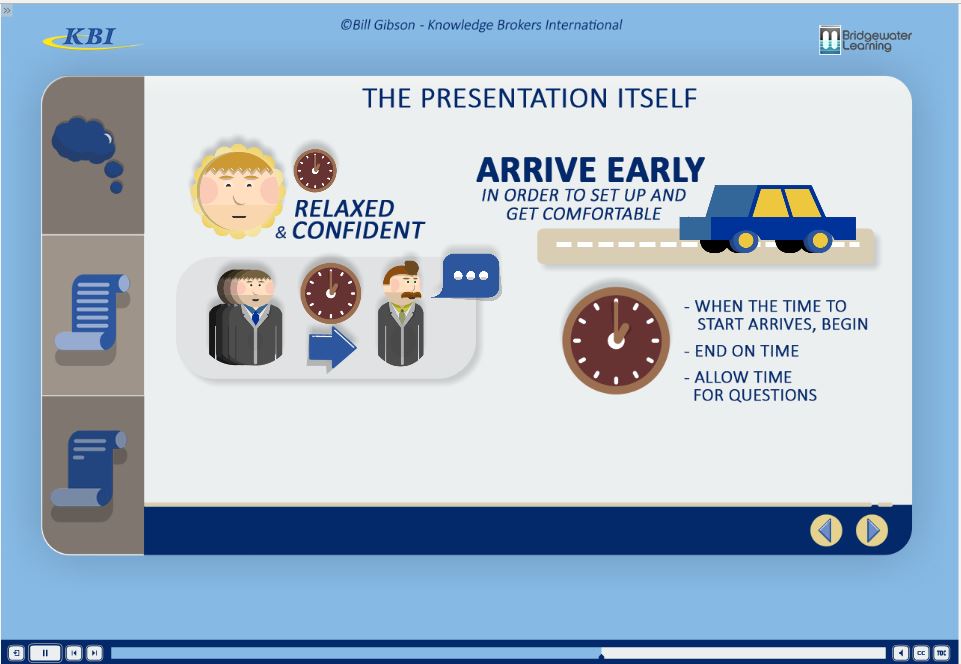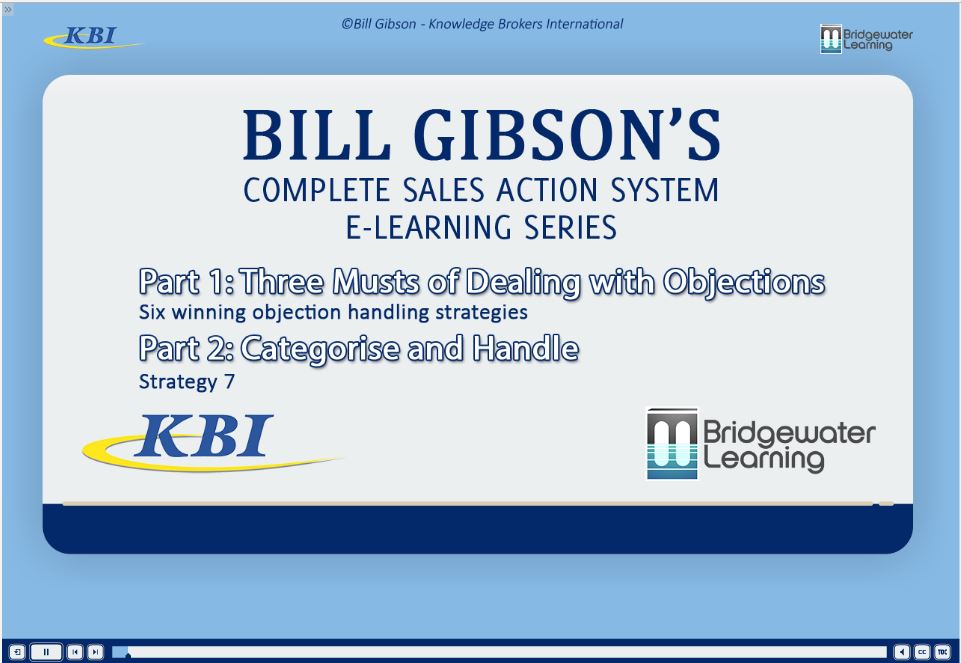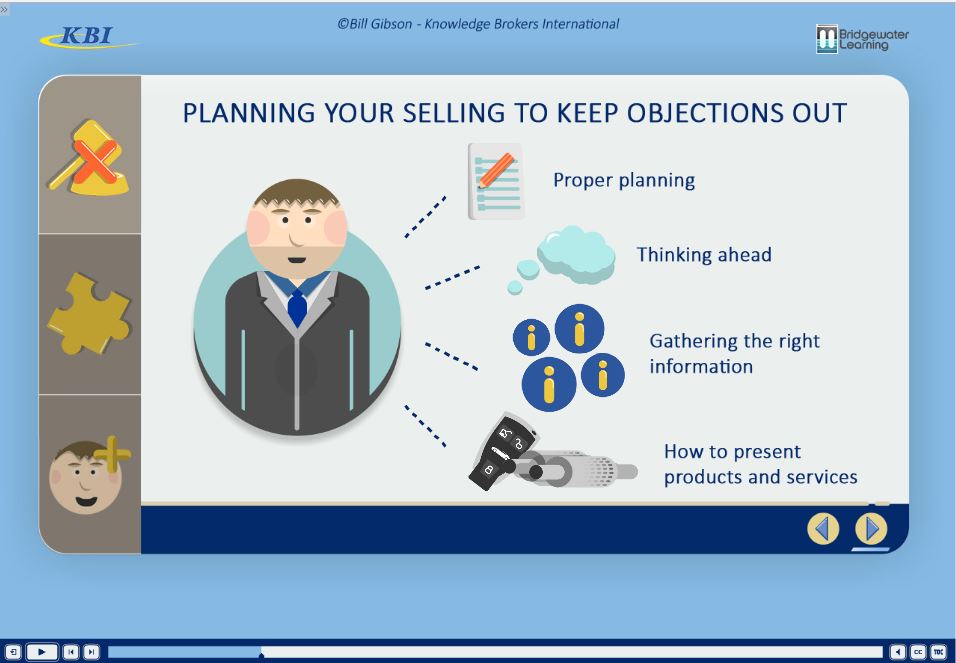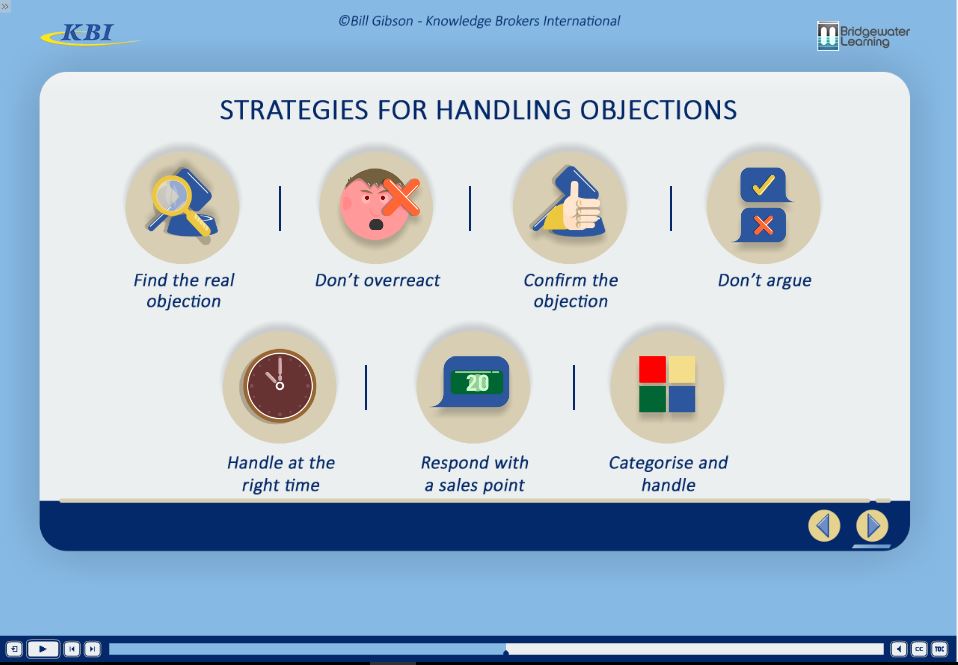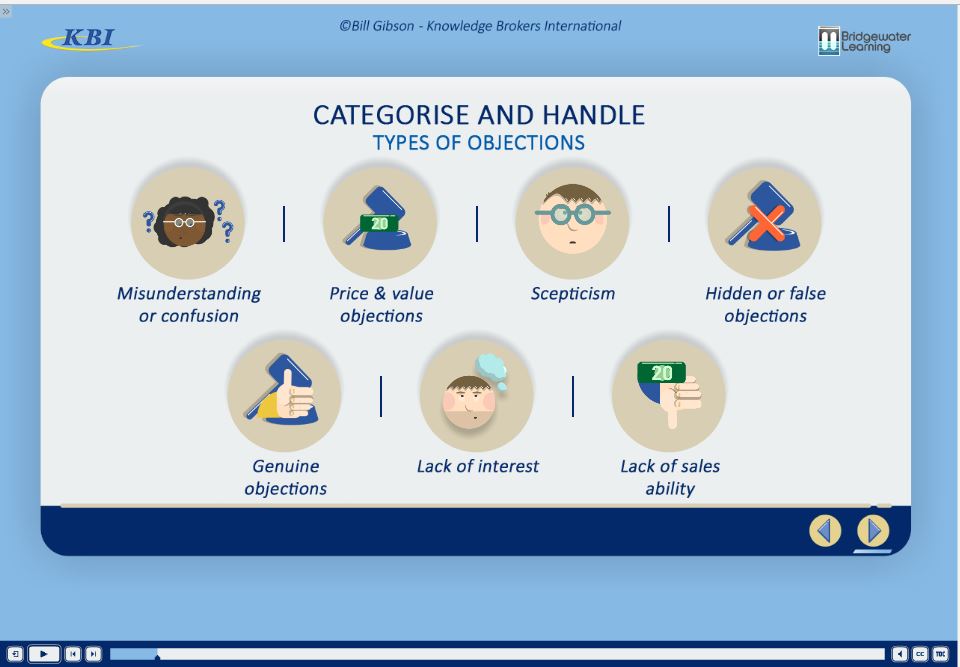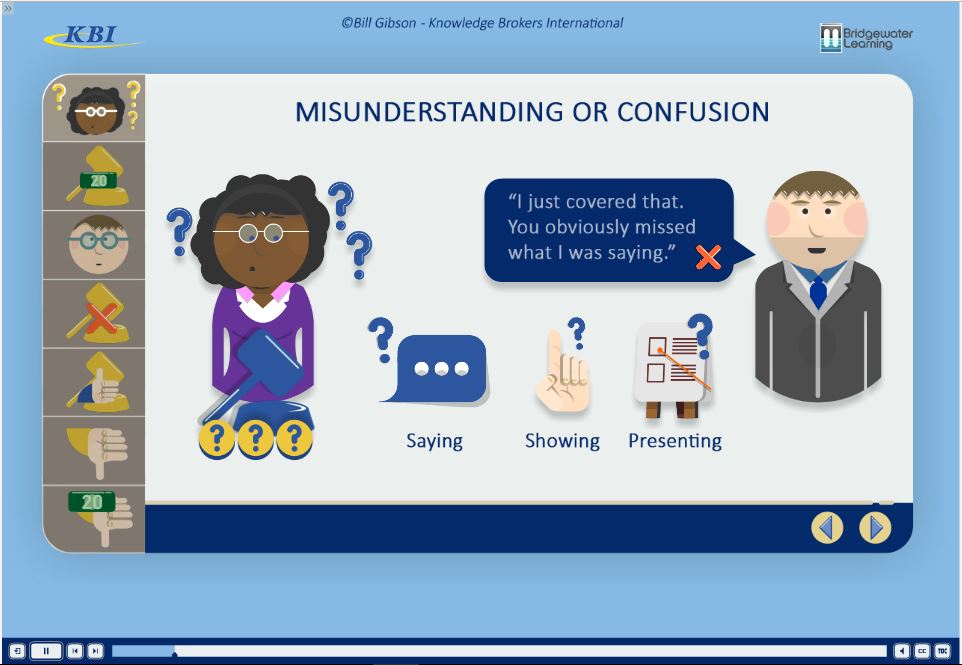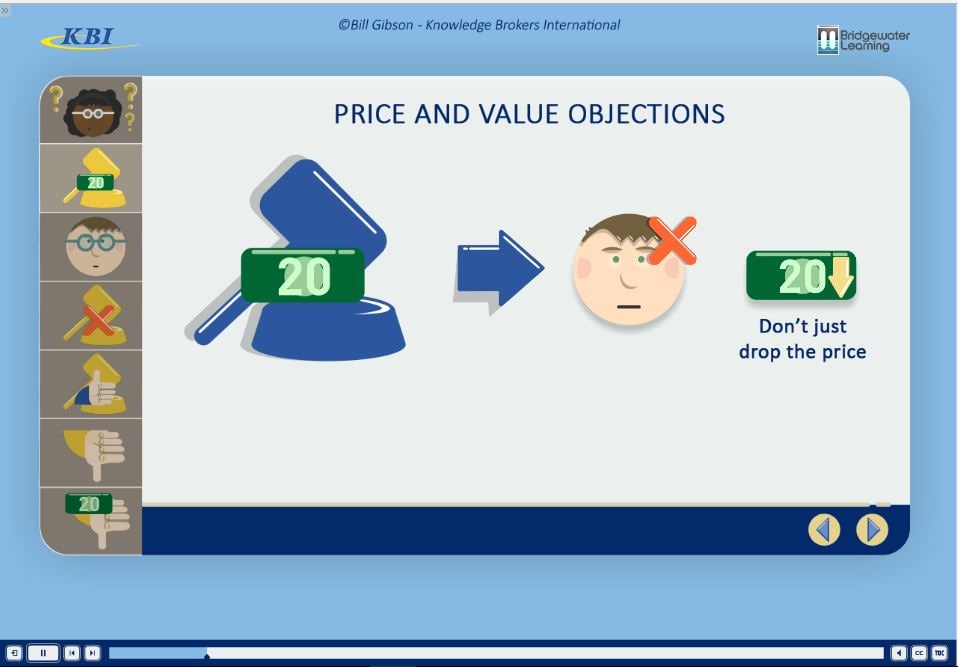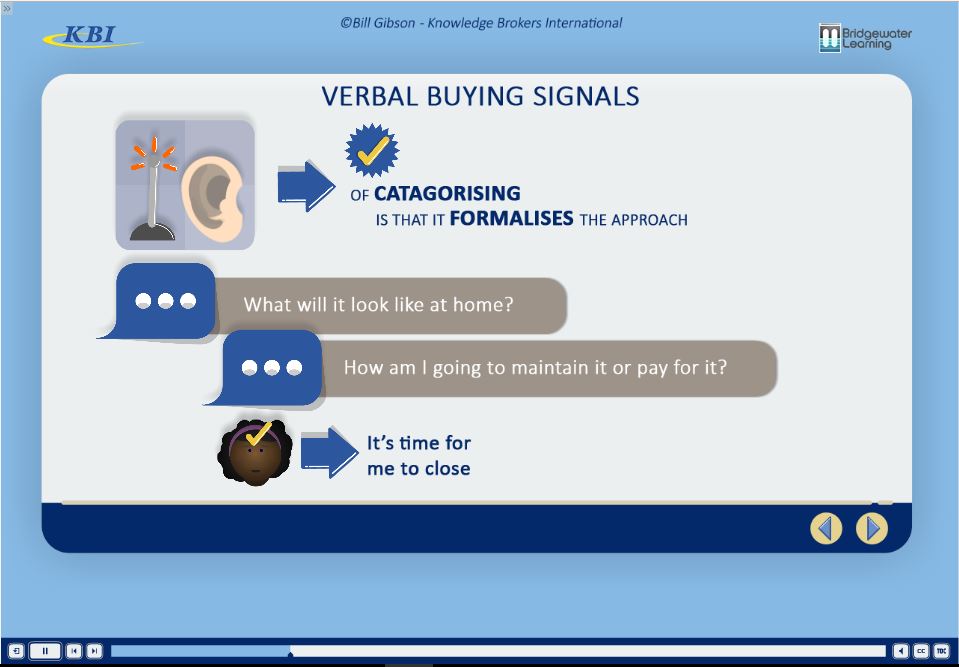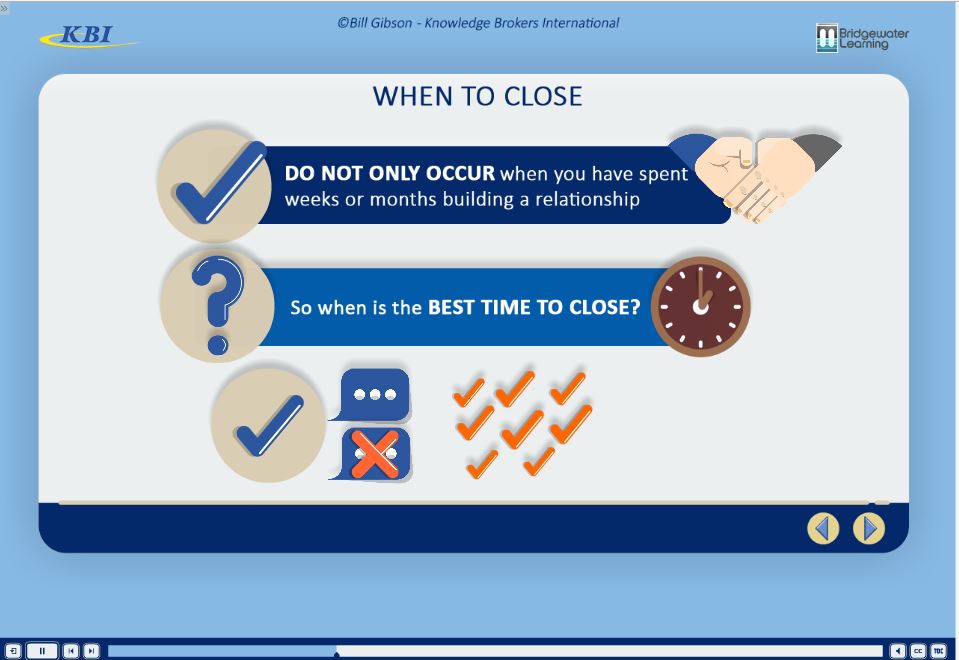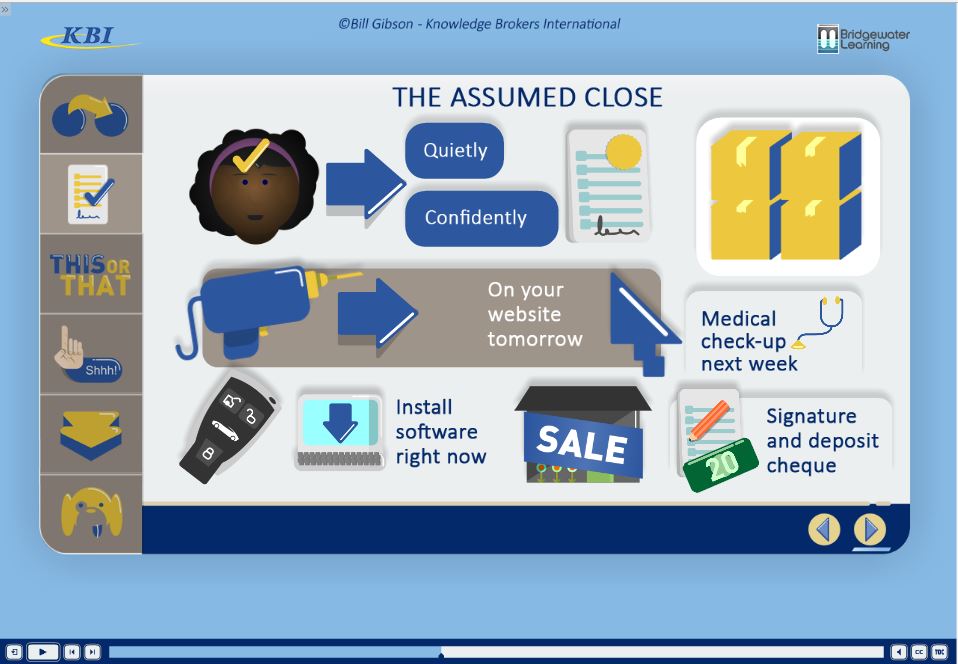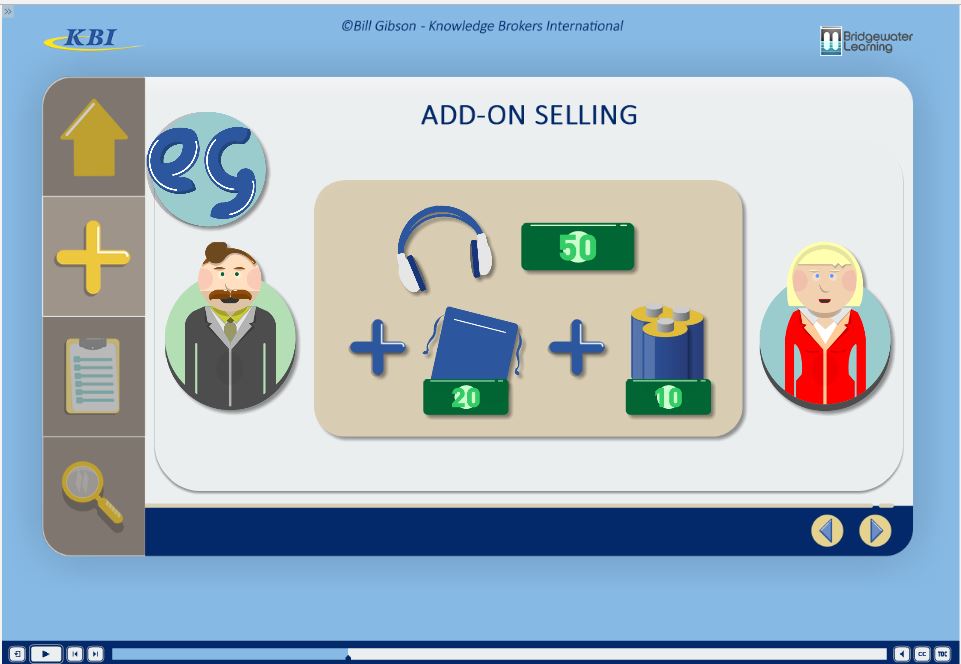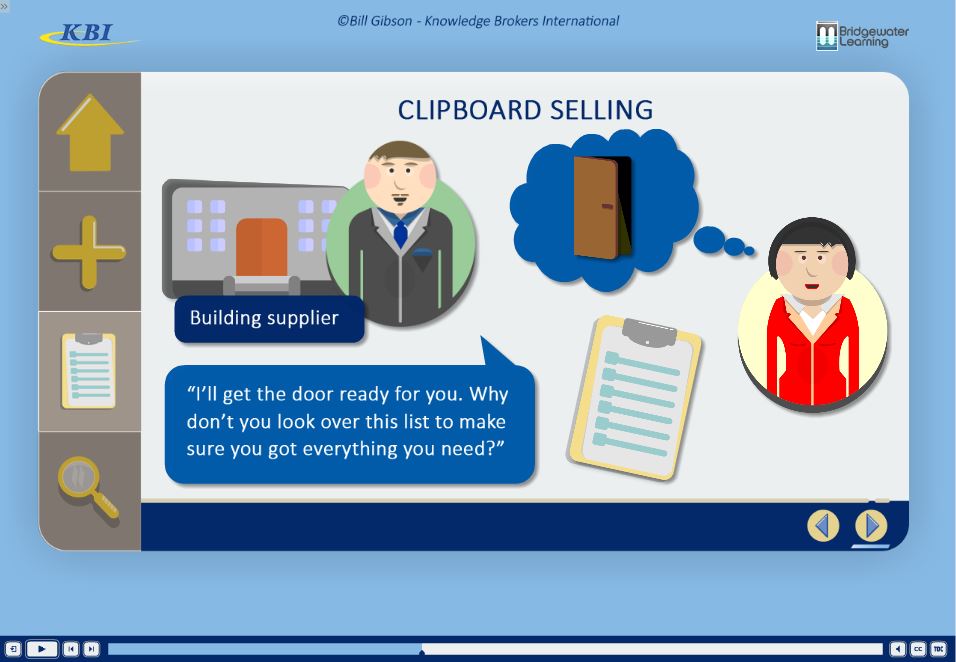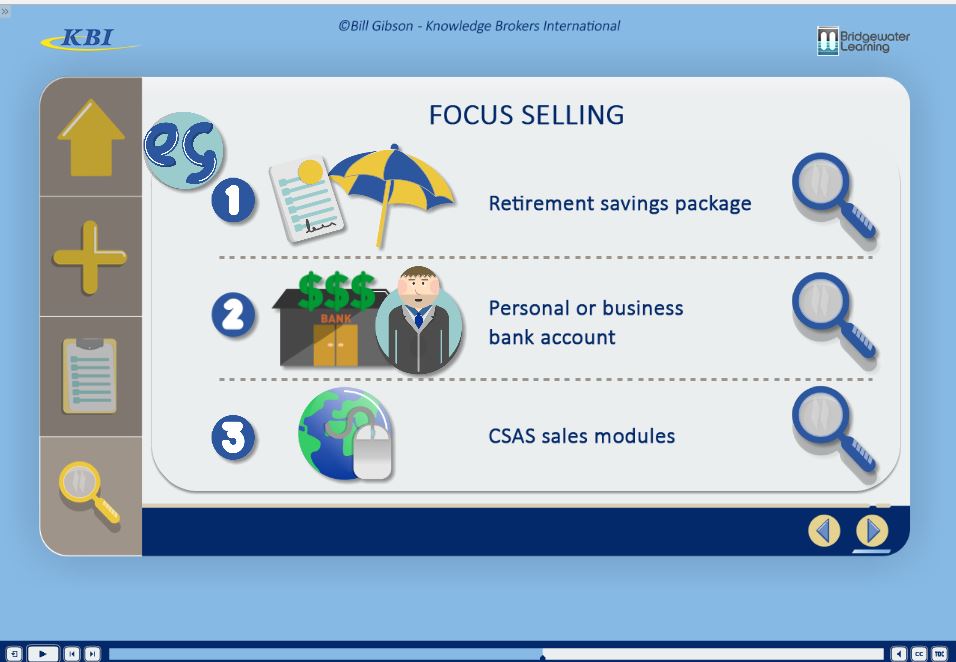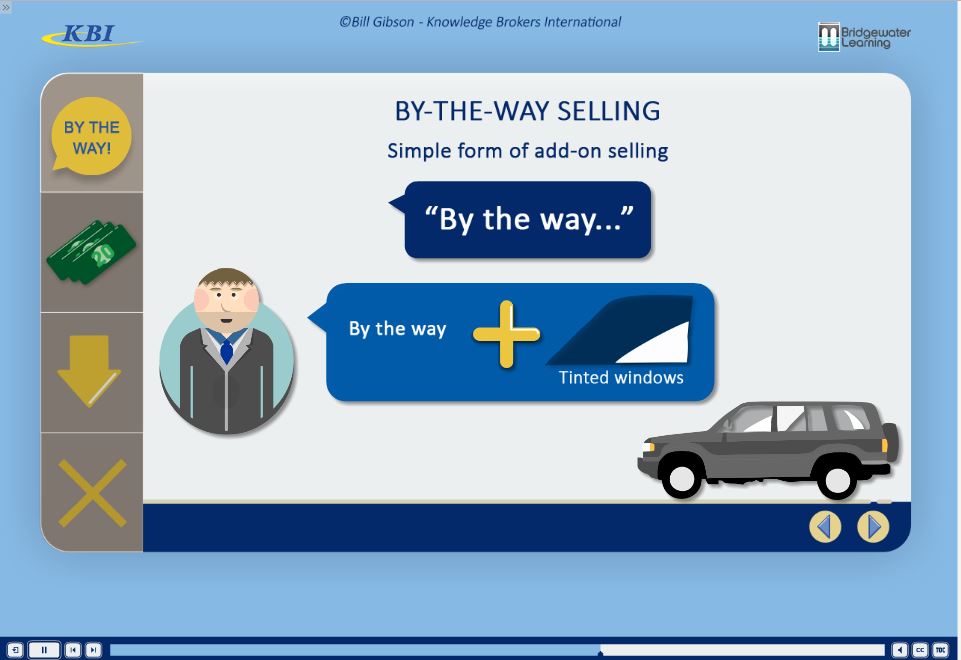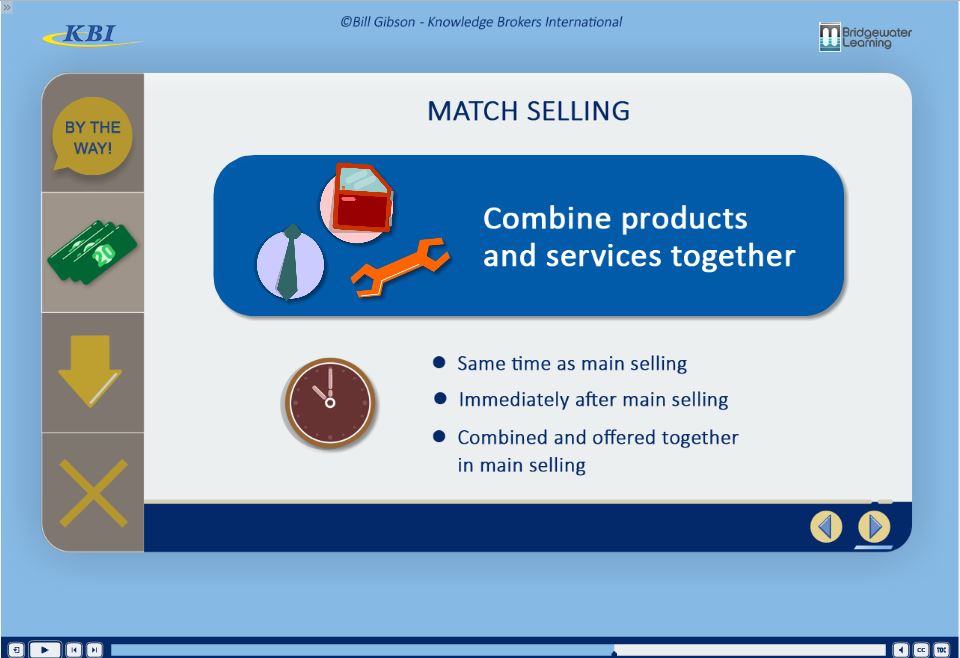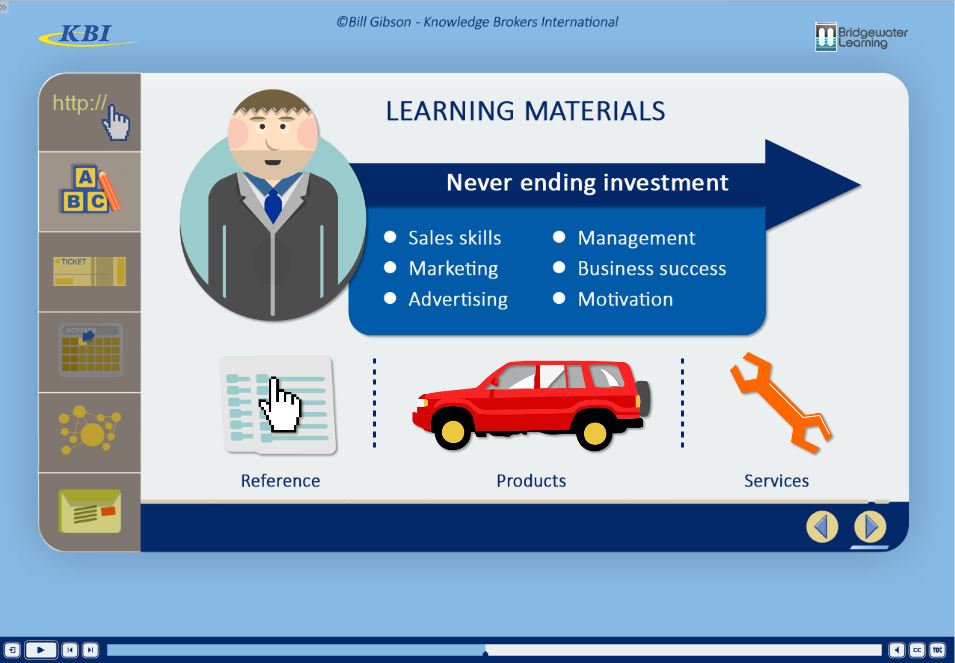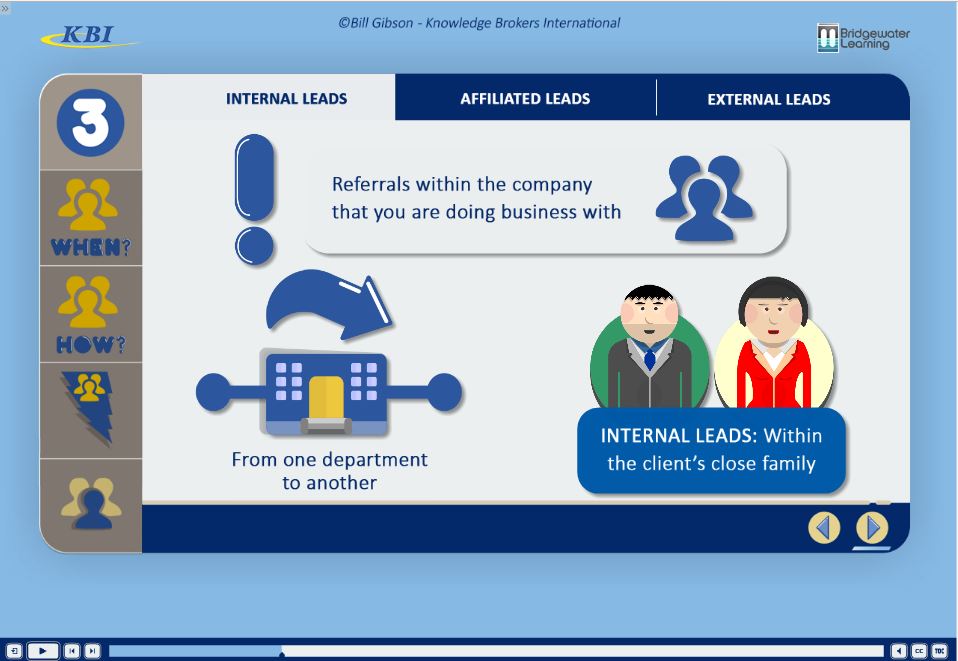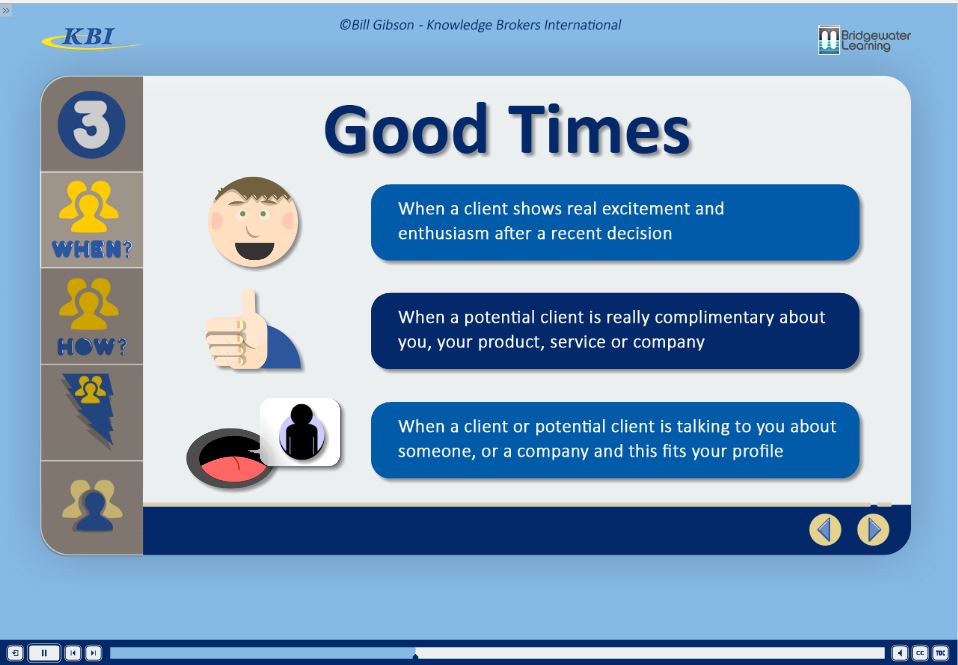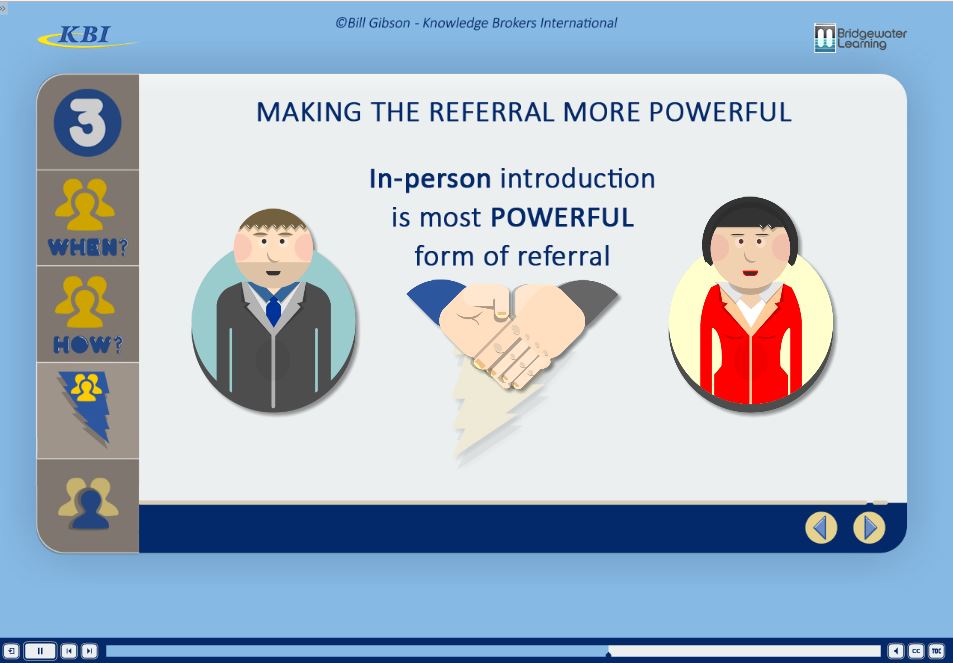Reading the Client
R750.00
Learning Objectives
Identify your own Personality Style using the Quick Read Tool. Understand how your own Personality Style influences your personal behaviour.
Understand the Personality Style of others and how to most effectively engage, connect and sell to that personality style.
Estimated length, including assessments and exercises 1 hour
Description
Different Strokes for Different Folks!” This module improves sales effectiveness from the inside out by teaching sales professionals how to utilise their knowledge of “personality profiling” and operationalise it with a “Quick Read” tool from two simple questions. Understanding and practicing selling to different styles will enhance verbal and written proposals and advance relationship development. By enhancing communication skills and identifying their own personalities, sales staff will be able to intuitively handle and understand clients and their own
corporate team.
Rapport Building Strategies
R750.00
Learning Objectives
Part One- Building Rapport and Personal Excellence from the Inside
Understand the importance of Rapport Building in the sales process with customers and potential customers.
Have a good understanding of the need for Personal Excellence and the 5 levels of the Personal Excellence model.
Part Two- The 6 Strategies
Define and apply the 6 strategies for building rapport:
- Adjust the real internal you
- Drop the role
- Match the total person
- Talk their language
- Anchor for response
- Be a complete listener
Estimated length, including assessments and exercises 1 hour 30 minutes
Description
“The absolute No. 1 factor in selling today is ability to build rapport.” Module 4 teaches sales people to shift gears and come out of their comfort zones to build attraction with the buyer.
Match, mirror and pace the rhythm of communications; recognise their core visual, auditory, kinaesthetic (feeling) senses, and appeal to this by using vital listening and feedback skills. Roleplaying and various exercises will allow sales professionals to adjust, drop the role, mirror and talk the language, anchor the responses and become a real listener. Where 70% of the sale is listening to the buyer, this module develops the conscious necessity of becoming a “Master Rapport Builder”.
Warming Up The Call
R750.00
Learning Objectives
Part One – Preparation
Understand the importance of the concept of Professional Selling in achieving your personal objectives.
Be able to implement the key points in Warming up the Call including:
- Preparing informing on WHO – the people who you will be calling or meeting
- Identifying WHY – that is the type of call you are making
- Researching the WHAT – that is the needs of the customer, and everything about them.
- compiling and information check list
- setting clear objectives for our call
- ensuring you have all the needed information and tools you need
- and making sure that you are talking to the right person at the customer or potential customer
Part Two – The Call Itself
Understand why warming up the call is important in relation to Professional Selling.
Be familiar with, and be able to implement the key points in Warming up the Call including:
- How to warm up For the call and,
- How to warm up the call itself
Estimated length, including assessments and exercises 1 hour 30 minutes
Description
90% Preparation! 10% Perspiration!” Get prepared, gather information, know the level of selling that will be involved, utilise objective cards, relate customer needs and get through to the right person! Module 5 makes the Call your biggest asset. This teaches sales professionals the do’s and don’ts and the strategic tools to get through to the right people. In various role playing and on-the-job exercises, the sales team will be able to build credible strategies for maximising the upside of using the telephone, second person or referral appointments, co-incidental encounters, and general networking. Strategic tools, such as creative attention grabbing letters, faxes, and emails will be built as effective support for reaching your preferred contact. Indirect influencing and strategic tools will build the different steps necessary to make a successful call.
Breaking The Ice
R750.00
Learning Objectives
Part One – Breaking The Ice
Understand what is meant by “Breaking the Ice” in a sales context. List the 4 main informal approaches to Breaking the Ice with a potential customer. Identify situations where Breaking the Ice is important, and then to plan the various approaches you could use in these situations.
Part Two – Needs Analysis
Appreciate the need for formal information gathering through a Needs Analysis and when to use this approach.
Understand the benefits of this approach, and what to do if you cannot meet the client’s needs.
Construct a comprehensive Questionnaire appropriate for the markets to which you sell.
Interview potential and existing customers and gather information which will assist you and your team in building a long term relationship with the your customers
Estimated length, including assessments and exercises 1 hour 30 minutes
Description
Comfort within the initial approach can make a major difference how quickly the sale moves forward!” Utilising the power of an informal or formal Needs Analysis approach will assist in identifying the key needs and upside opportunities with your clients, and ensures your proposal and conversations are on target and budget. Soft skills and key approaches are critical components for the use of your contact opportunities. Hands-on exercises will help each participant develop their own approaches and become comfortable with interviewing the client for vital information. Creating a Needs Analysis, building interview skills and constructing structured approaches will drastically advance the speed of your sale’s cycle
Understanding Buying Motives
R750.00
Learning Objectives
Understand buying motives in general and the 7 categories of buying motives in particular. Realise the differences between personal and corporate buying motives.
Know about buying triggers and be able to identify these as they relate to your own sales efforts.
Be able to identify the benefits of your company and its products, and of yourself to your customers and potential customers.
Estimated length, including assessments and exercises 1 hour
Description
How they benefit is what counts! Module 7 teaches sales professionals how to understand the disciplines for selling to logic and emotion, individuals and corporations, using motives, features, benefits, and accentuating these benefits to find the factors that trigger a “buy”. Participants will become very clear on what benefits are derived from the features of their products and services and from dealing with clients and their companies. Actual lists and tools for identifying tactics will be developed by each person within the exercises to sharpen the awareness and effectiveness of understanding buying motives and triggering a buy.
Proposal Selling
R750.00
Learning Objectives
Understand how to modify your approach to deal with the motivations of today’s buyer.
Be able to use the key information influencing factors to enhance your odds of success in presentations.
Be equipped to present to groups Know the basic do’s and don’ts of written proposals. Have some good ideas on innovative strategies you could use to bypass the whole presentation/proposal stage, and get the sale.
Estimated length, including assessments and exercises 1 hour 30 minutes
Description
Ask for the business!” Module 8 shows a sales professional one of the best ways to demonstrate that they understand the customer is through effective proposal writing and boardroom presentations. A sales professional will enhance group presentation and proposal selling by writing down and presenting the “real” upsides to doing business with their firm and the advantages of their relationship. By creatively utilising language, benefits, options, and presentation the bottom-line financial commitments will become digestible. The sales tem will learn when and how to tap into buying motivations, to write a proposal, to present to individuals or groups and how to turn static content into buying directions by asking for the business. Templates and checklists will be developed and implemented to ensure the participant is 100% prepared for presentation effectiveness and the appropriate use of a proposal as a selling tool.
Handling Objections
R750.00
Learning Objectives
Part One Three Musts of Dealing With Objections and 6 Winning Objection Handling Strategies
Be constructive when responding to any objections which arise, and turn these into selling points.
Remain positive and not become negative when faced with objections.
Use 6 of Bill’s 7 Winning strategies to enhance your objection handling abilities and increase your chances of success.
Part Two – The 7th Winning Objection Handling Strategy
List the 7 categories of objections that clients may raise in response to your sales efforts.
Draw up a list of existing and potential objections per client and categorize them.
Devise responses to each of these objections. Apply the other general techniques we cover here, to support your sales process.
Estimated length, including assessments and exercises 2 hours
Description
If there were no objections there would be no need for sales people!” The best way to handle objections is, knowing how to deal with them before they happen. Module 9 participants will be prepared for every objection they’ve received or will receive, learn how to deal with various objections from different people, and how to plan a selling strategy to keep out objections and build milestones. Constructive ways to handle the questions and ways to take the right attitude about objections will also be implemented in a variety of exercises and role-playing. The 7 Winning Objection Handling Strategies and several other techniques will be customised to deal with and benefit the sales professional by turning objections into opportunities.
Closing the Sale
R750.00
Learning Objectives
Be able to recognize various types of positive buying signals from the client. Know when to close the sale. Know and be able to use a variety of techniques to close the sale successfully.
Estimated length, including assessments and exercises 1 hours
Description
Closing a sale is easy… providing you’ve established a trustworthy relationship with the customer at the beginning, matched their needs with your benefits, identified the buying signals at the right time and have given real assistance throughout the sales process. Module 10 participants will learn to recognise verbal and non-verbal closing signals, when to close, seven different tactics for closing successfully, and how to confirm the customers’ needs have been met.
Maximising Additional Sales Opportunities
R750.00
Learning Objectives
Be familiar with 8 different ways in which you can maximise sales opportunities
Be able to apply these to your own situation, organisation, and industry.
Estimated length, including assessments and exercises 1 hours
Description
Beyond break-even is where the profits are.” The additional sales opportunities tied to the initial sale are often where the profits come from. This module will help staff develop tools and systems to maximise sales opportunities. Sales professionals will develop the skills of add-on selling, up selling, cross selling, focus selling, match selling and various other strategies. Simple easy to use systems and reminders combined with product knowledge are the key to this module. Virtually anyone servicing a customer or selling and managing the sales process could benefit from this
module.
After Sales Account Building
R750.00
Learning Objectives
Part One – VIP functions and Other useful tools
Be aware of the different types of VIP functions you could use, and be able to set these up in a planned
way for your clients.
Understand the other tools you can use, and how to use them
Part Two – Lead Opportunities (referrals)
Understand the different types of referrals you can get
Know when to ask your client for a referral
Know how to ask for a referral
And realise the importance of showing “lead respect”
Estimated length, including assessments and exercises 1 hour 45 minutes
Description
After the sale is made the work has just begun.” After the purchase, many sales people and companies neglect the customer. Learn how to maintain and strengthen client relationships after the sale to ensure that they become a long-term business partner. Participants will build successful tools and strategies to keep and develop key clients. By planning the effective use of VIP events, clippings, tickets, lead referrals, scratching their backs, sending business, thank you opportunities, newsletters, personal calls and other creative ways of adding value, participants will learn how to build a strong relationship. Module 12 is very complimentary with Managing Complex Business Relationships for planning how to influence various individuals by becoming a Master Relationship Builder will produce long-term profitability and leads from your existing client base.

